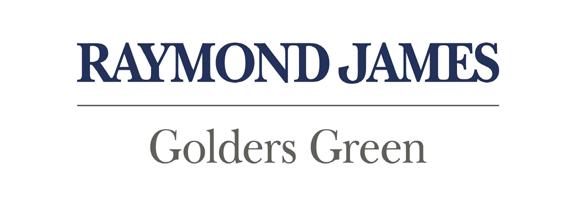










BY DAVID SAFFER
Hamas’ political leader Ismail Haniyeh was assassinated by a precision strike in Tehran in the early hours of Wednesday morning.
The IRGC blamed Israel for Haniyeh’s death but there
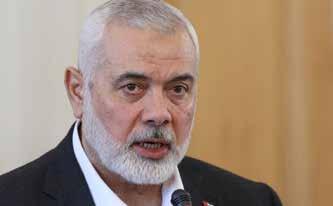
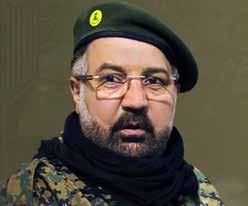
when
address to the nation last night.
The IDF is on high alert and prepared for a response from the Iranian regime.

Haniyeh’s death came 24 hours after the IDF eliminated Fouad Shukr, number two to Hezbollah Secretary-General Hassan Nasrallah, in a targeted strike in the Dahiya Quarter of Beirut on Tuesday evening.
Continued on page 4









SEA-VIEW APARTMENTS FOR LIVING OR INVESTMENT


Savvy Modern Or thodox Anglos are racing to buy the last available sea-view proper ties in Ashkelon right opposite the Marina!
We specialize in this beautiful city which is fast becoming the SAFEST location in Israel. Tell us what your ideal is, whether house or condo, and we’ll find it for you!
• Only 30 minutes to airpor t and one hour to Jerusalem
• • • •
New high-speed trains, only 40 minutes to Tel Aviv
Proven to be an excellent investment
Earn r ental money when you ’ re away
Mor tgages available at no extra fee
• Close to many shuls and the ver y best beaches
• Only 20% down and balance upon completion
• Superior interior design ser vices
• Largest range of resales available
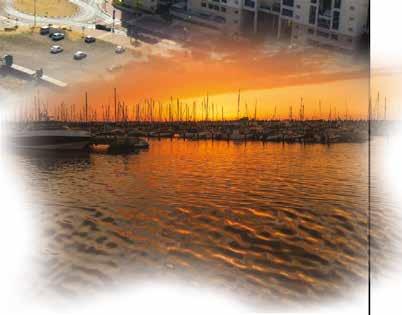




BY ADAM MOSES
Anjem Choudary has been sentenced to life in prison with a minimum term of 28 years at Woolwich Crown Court.
Choudary was charged with three terrorism offences including directing terror group Al-Muhajiroun and encouraging support through a proscribed organisation.
The judge reportedly said that Choudary was “front and centre” in an organisation designed to encourage and support acts of terrorism. He also “sought to groom young people into your way of thinking”.
“Organisations such as yours normalise
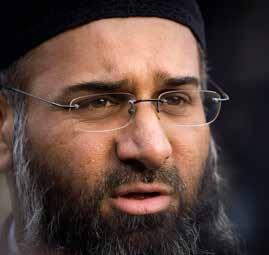
violence in pursuit of an ideological cause,” the judge added. “Their existence gives individuals the courage to commit acts which otherwise they might not do. They drive wedges between people who otherwise could and would live together in peaceful co-existence.”
Police in Britain, the US and Canada investigated Choudary recruiting new followers.
Deputy Commissioner Rebecca Weiner of the New York Police Depart ment (NYPD) described Choudary as a “shamelessly prolific radicaliser”.
Undercover officers in 2022 recorded Choudary boasting that he was the ‘num ber one radicaliser in Britain’.
Choudary described it as a “badge of honour” and “medallion on my chest”. Campaign Against Antisemitism noted Choudary, born in the UK of Pakistani descent, became radicalised in the 1990s, launching al-Muhajiroun in the UK, later banned in 1996. The group disbanded in 2004 following its proscription but is believed to have continued under different aliases.
Choudary was convicted of support ing the Islamic State in 2016. He served half a five-year term at Belmarsh prison subject to licence conditions. In 2021, he was reported to have suggested MP Sir David Amess may have been mur dered because of “rumoured pro-Israel views”






Continued from page 1
United Airlines and Delta Airlines have suspended flights from today according to Israeli media.
Netanyahu vowed to make the terror group pay a “heavy price” for a rocket attack by Hezbollah from Lebanon that killed 12 children from the Druze community of Majdal Shams on Saturday night.
He told Israelis on TV that the IDF had struck crushing blows on Hamas, Houthis and Hezbollah in recent weeks.
Shukr, he noted, was one of the most wanted terrorists in the world with a $5 million bounty on his head and directly responsible for the Majdal Shams massacre, murder of many Israeli citizens and unceasing assault in northern communities.
Netanyahu added: “He was the main liaison between Iran and Hezbollah and responsible for the organisation’s missiles…
Whoever butchers our children, whoever murders our citizens, whoever attacks our state will pay the price.” He continued: “Challenging days are before us. Since the attack in Beirut, we have heard threats from all sides. We are prepared for any scenario. Israel will exact a very heavy price for aggression against us from whatever quarter.”
Netanyahu said the IDF, Police, ISA and Mossad are fighting like lions, adding, “We do not forget for a moment the bereaved families, the families of hostages and our wounded.”
Defense Minister Yaov Gallant said Hezbollah crossed a ‘red line’ in the terror attack that injured 40 people.
The IDF completed precision strikes on targets inside southern Lebanon prior to the targeted killing of Shukr, also known as Sayyed Makhsan.

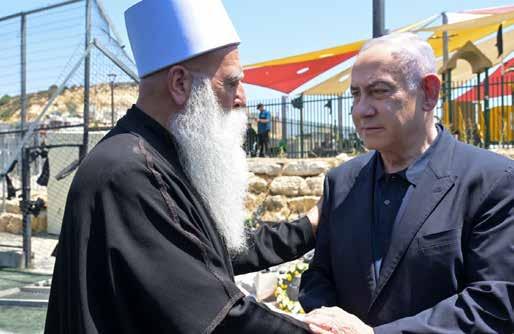
The IDF said in a statement: “He oversaw the organisation’s most advanced weaponry, including precision missiles, cruise missiles, shore-to-sea missiles, long-range rockets and unmanned aerial vehicles. He was also responsible for planning and executing Hezbollah’s terrorist plots against Israel.”





• As an independent broker acting on your behalf, I aim to get the highest prices for your pieces
• No need to worry about posting your
• I sell through many different auction
collectors and private clients
• With over 18 years in business you will always receive my personal discreet one-to-one service
• Free consultations at your convenience
Thousands of mourners attended the funerals of 11 youngsters in Majdal Shams on Sunday. The remains of a twelfth victim have not been found.
Victims named were Fajr Laith Abu Saleh (16), Ameer Rabeea Abu Saleh (16), Hazem Akram Abu Saleh (15), John Wadeea Ibrahim (13), Iseel Nasha’at Ayoub (12), Finis Adham Safadi (11), Yazan Nayeif Abu Saleh (12), Alma Ayman Fakhr al-Din (11), Naji Taher al-Halabi (11), Milad Muadad al-Sha’ar (10). Nathem Fakher Saeb was laid to rest in Ein Kinia.
Druze community spiritual leader Sheikh Mowafaq Tarif condemned the attack.
“The sight of the children’s shattered bodies strewn across the grass is indescribable,” he said. “A civilised country cannot allow the continuous harm to its citizens and residents.”
Local sirens were heard seconds before the strike leaving no chance to reach bomb shelters. Paramedics attended to relatives of victims who collapsed with grief. Many spoke of heartbreaking scenes.
Arabic-speaking social workers are
supporting families and witnesses.
World leaders called for restraint and a de-escalation of hostilities to avoid all-out war in the region.
Israel’s security cabinet authorised Netanyahu, who left Washington early on news of the Hezbollah attack, and Gallant to decide on the “manner and timing” of Israel’s retaliation.
After the meeting Israel’s leader visited the site of the tragedy with ISA Director Ronen Bar.
Netanyahu, who laid a wreath at the site and met with bereaved families, was briefed by Majdal Shams Council Chairman Dolan Abu Saleh and Ein Kiniye Council Chairman Wael Mugrabi.
“This is a terrible tragedy,” he said. “Like all citizens of Israel and many people across the world, we were profoundly shocked by this terrible killing. Our response will come and it will be severe.”
Gallant visited families, stating: “Hezbollah will pay for its crimes. Our actions will be louder than words.”
UN National Security Council spokesperson Adrienne Watson said: “Our support for Israel’s security is ironclad and unwavering against all Iran-backed threats, including Hezbollah.”
Watson added: “We have been in discussions with Israeli and Lebanese counterparts. This attack was conducted by Lebanese Hezbollah. It should be universally condemned.”
President Isaac Herzog condemned Hezbollah, stating: “There are no words that can comfort the families of the young victims. Hezbollah, armed and funded by Iran, does not distinguish between child or adult, soldier or civilian, Jew or Muslim, Druze or Christian.” He added: “The world cannot continue to sit in silence in the face of Nasrallah’s terror attacks. The State of Israel will defend its citizens and sovereignty.”
IDF spokesman, Rear Admiral Daniel Hagari addressed the media, condemning Hezbollah. He said: “Our intelligence is clear. Hezbollah is responsible for the murder of innocent children.”
IDF Chief of Staff Lt. Gen. Herzi Halevi said, “We’re going to hit Hezbollah hard. We know how to strike even very far from the State of Israel. When necessary, we will act decisively.”







BY DAVID SAFFER
Prime Minster Benjamin Netanyahu addressed a joint session of Congress at a “crossroads of history” last week.
Netanyahu refused to buckle to protesters at every turn of his diplomatic visit to Washington where he met President Joe Biden, Vice President Kamala Harris and former President Donald Trump, congressional leaders and families of hostages murdered by Hamas or still in captivity in Gaza.
Netanyahu, in his fourth Congress speech as Israel’s prime minister, spoke initially about Iran’s axis of terror confronting America, Israel and Arab friends in the Middle East.
“We meet today at a crossroads of history,” he said. “This is not a clash of civilisations. It’s a clash between barbarism and civilisation. It’s a clash between those who glorify death and those who sanctify life. For the forces of civilisation to triumph, America and Israel must stand together.”
Recalling Pearl Harbour in 1941 and the Twin Towers 2001 terror attack, Netanyahu said October 7 was a day that would “forever live in infamy” for Israel. Hamas, he said, “butchered” 1,200 people from 41 countries including 39 Americans. “Proportionately, compared to our population size, that’s twenty 9/11s in one day,” he noted.
Israel has brought home 135 hostages but the pain for families was beyond words. “I will not rest until all their loved ones are home,” he said. “As we speak, we’re actively engaged in intensive efforts to secure their release.”
Netanyahu thanked Biden for his support on behalf of the hostages and Israel’s military effort, but condemned anti-Israel protesters standing with Hamas who “refuse to distinguish” between those who target terrorists and civilians.
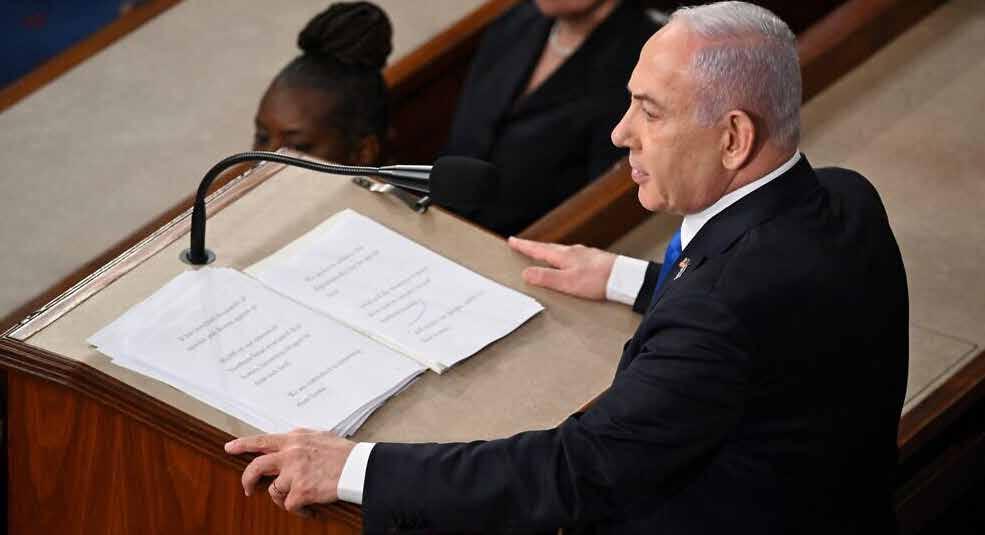
condemn it and resolutely fight it, without exception.”
“For nearly four thousand years, the land of Israel has been the homeland of the Jewish people, it will always be our home,” he said.
Noting how antisemitism led to the Holocaust, Netanyahu vowed: “Whenever and wherever we see the scourge of antisemitism, we must unequivocally

Netanyahu criticised the International Criminal Court for accusing Israel of deliberately starving the people of Gaza. “This is utter complete nonsense,” he observed. “It’s not because Israel is blocking it, it’s because Hamas is stealing it.” As for ICC accusations that Israel targeted civilians, Netanyahu explained that the IDF had dropped millions of flyers and text messages, and hundreds of thousands of phone calls to ensure Palestinian civilians were out of harm’s way.
“The ICC is trying to shackle Israel’s hands and prevent us from defending ourselves,” he added. “If Israel’s hands are tied, America is next. Israel will always defend itself. Iran understands that to truly challenge America, it must first conquer the Middle East. And for this it uses its many proxies, including the Houthis, Hezbollah and Hamas. Our enemies are your enemies, our fight is your fight, our victory will be your victory. That victory is in sight. Israel’s defeat of Hamas will be a powerful blow to Iran’s axis of terror.”
Regarding Hezbollah, who have launched thousands of missiles and drones against Israel resulting in 80,000 of citizens in northern Israel evacuating homes, he said: “Israel will do whatever it must do to restore security to our northern border and return our people safely to their homes.”
As for the Houthis, he noted: “Those who attack Israel will pay a very heavy price.”
Netanyahu thanked the US for providing Israel with military assistance. Israel had responded with critical intelligence that had saved many lives.
The war in Gaza, he said, would end if Hamas surrenders, disarms and returns all the hostages, but if they don’t, Israel would destroy Hamas’ military capabilities and rule in Gaza. At this point, Netanyahu noted, a new “demilitarised and deradicalised Gaza” could lead to a
future of security, prosperity and peace.
Regarding a broader Middle East, Netanyahu said America and Israel could forge a security alliance made up of countries at peace with Israel and others wanting to make peace. This would result in a natural extension of the Abraham Accords to counter Iran.
Netanyahu thanked Trump for brokering the Accords, recognising Israel’s sovereignty over the Golan Heights and Jerusalem as Israel’s capital.
Netanyahu concluded: “America remains the beacon of liberty. I’m confident that our two nations will vanquish the tyrants and terrorists who threaten us both. No matter how long it takes, Israel will not relent. We will defend our land. We will defend our people. We will fight until we achieve victory. And we will continue to work with the US and Arab partners to transform a troubled region.”
Following his speech Netanyahu met Biden, Harris and Trump.
Biden reaffirmed US’ ironclad support to Israel and security threats from Iran and its proxies.
Netanyahu and Harris, who controversially did not attend the address, held “frank and constructive” discussions.
The meeting at Trump’s Florida Mara-Lago estate was the first direct talks in four years.
“We’ve always had a great relationship,” said Trump, who criticised Harris for missing the speech, he described Harris’ encounter with Netanyahu as “insulting”. Hostage families emerged from meetings with Biden and Netanyahu cautiously optimistic.
Beforehand Netanyahu held positive meetings with House of Representatives Speaker Mike Johnson and Senate Majority Leader Chuck Schumer, former US Vice Presidents Al Gore and Mike Pence, and US evangelical community leaders. He also attended a memorial ceremony for Senator Joe Lieberman.
BY ADAM MOSES
Jewish organisations have backed Chief Rabbi Ephraim Mirvis’ request for a meeting with Prime Minster Keir Starmer to express Jewish community concerns over the government’s stance towards Israel.
The government’s decision not to pursue the UK’s objection to the ICC’s jurisdiction over the Israel-Gaza conflict follows the return of funding to UNRWA and reports that the government will suspend arms supplies to Israel.
The Board of Deputies and Jewish Leadership Council, in a joint statement noted: ‘This regretful and regressive step not only appears to be a reversal of longterm UK foreign policy, but also puts us at odds with many of our international allies who have challenged the court’s treatment of Israel.
‘The decision comes at a time where many in the Jewish community are still assessing how this government will in practice standby its words in opposition to support Israel’s right to self-defence. Israel only 300 days ago suffered the worst attack on Jewish people since the Holocaust. We are concerned that the cumulative effect of these announcements, in quick succession, signal a significant
shift in policy towards Israel being a key UK ally. This would not only be a strategic error but a moral one. The government should urgently reconsider any such approach.’
Jonathan Metliss, Action Against Discrimination condemned the decisions as they could result in problems for the Jewish community regarding antisemitic behaviour.
“The Labour cabinet contains at least six members not sympathetic to Israel’s position,” he explained. “It is astonishing how the Jewish community and its
leaders have flocked back to and shown support for Labour and its leaning against Israel. But we are comforted that some doubt is now being shown by the Board of Deputies and Jewish Leadership Council. I and many others in the community have expressed anxiety about Labour’s attitude to Israel. Sadly, these announcements maybe a sign of things to come.”
Barnet Conservatives have called on three MPs representing Barnet to convey to the government the distress caused to the Jewish community.
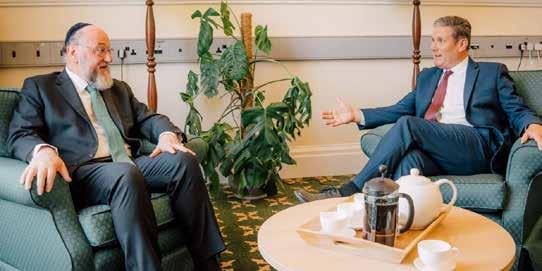
For over 120 years JNF UK has worked tirelessly to develop the Land of Israel.
Much of our work has only been possible thanks to the generosity of our legacy donors like Eric, who regarded the work of JNF UK as vital to realising the Zionist dream.
Leaving a gift in your Will, no matter how small or large, is one of the most valuable ways you can forge an everlasting bond with Israel.
Our professional and caring Legacy Team offer a range of professional services and first-rate pastoral care.
To find out more, please get in touch: Call: 020 8732 6101
They noted in a statement: ‘The Jewish community forms a significant portion of the population in the London Borough of Barnet and is one of the largest Jewish communities in the UK. The local MPs must fulfil their duty to represent the concerns and interests of their constituents.
‘Barnet Conservatives had previously warned the community about the potential impact of a Labour government on the relationship with Israel. During the election Labour leaders came out to pay lip service to the community promising to have changed. Regrettably, within just weeks of their appointment, our worst fears are beginning to materialise. Despite the government’s claims of support for Israel and the return of hostages, their actions suggest the opposite.
‘We must ask, what concrete steps have they taken to support Israel and the return of the hostages? It appears their policies have only served to undermine our ally, causing significant concern within our community and have already betrayed the trust many put in them. We urge our MPs to standup for their residents and address these pressing issues with the government. The Jewish community in Barnet deserves clear and decisive representation in these challenging times.’
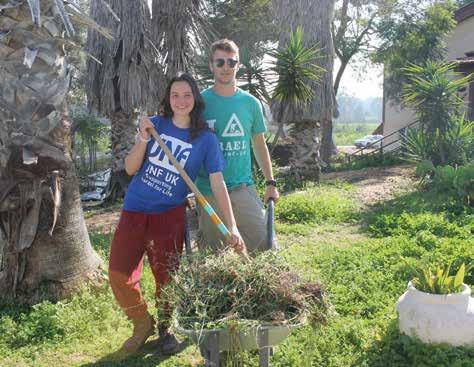
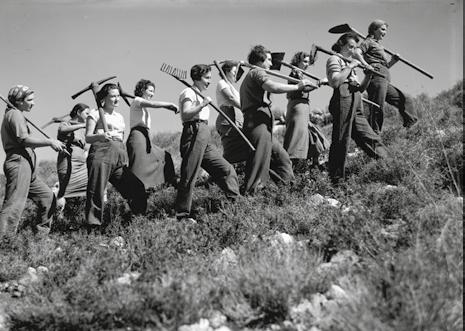
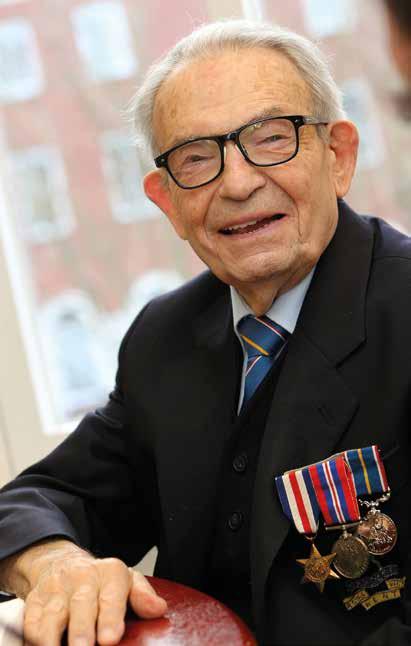
BY DAVID SAFFER
President Isaac Herzog met President Emmanuel Macron of France ahead of the 2024 Olympic Games at the Elysee Palace in Paris.
Herzog, who held a number of diplomatic meetings, greeted the Israeli delegation of 88 athletes at the Israeli pavilion at the Olympic Village.
The delegation joined bereaved families of Israeli athletes and trainers murdered at the 1972 Munich Olympics at a commemoration marking the 52nd anniversary of the tragedy.
Minister of Culture and Sports Miki Zohar, Israeli Olympic Committee chairperson Yael Arad and Munich family representatives Ankie Spitzer and Ilana Romano attended.
Security has been increased after members of the Israeli delegation received death threats.
Herzog told Macron: “The State of Israel is proud to participate in the Olympics. With every jump and step, every kick, lift and hit we stand together on the front
and skills. We are confident you will bring many achievements for Israel. We wish you much success.”
He added: “Go with your strength, achieve medals and accomplishments for Israeli sport. This is much more than just Israeli sport. Somewhere in Gaza, one of the captives might see you for a moment and you will inspire them with strength. When you take the stage, in every arena, I am sure that you carry with you a prayer for them. The resilience and
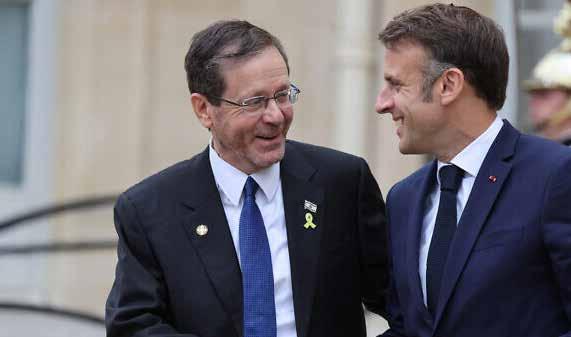
us, to all the people of Israel.”

Addressing Munich families, Herzog said: “The burning flame which represents the Olympic spirit will never be separated from the flame of memory and commemoration of the 11 murdered. If the torch goes out, the memory goes out. Therefore, the global challenge is to keep the Olympic spirit alive, to fight for it at all costs
because the Olympic spirit stands in the fight against evil.
“As the Olympic spirit strengthens us, we also preserve and strengthen the memory of the 11 who will be with us forever and must be held in the heart of the whole world.”


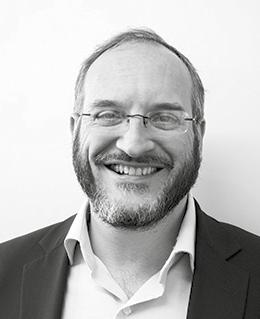
OPINION PIECE
BY RABBI NAFTALI SCHIFF
As a teenager I became acutely aware that as my grandmother advanced in age and became steadily more frail, my father’s strategy seemed to be to keep her alive from one family event to another, always giving her something to look forward to. It seems to have been a successful methodology, but one that I like to believe that was also connected to something deeper, as her maiden name was Moed.
The Jewish year is full of fasts and feasts to the extent that an ‘empty’ month is considered to be an anomaly which is given the epithet ‘mar´ or bitter. These days are far more than just anniversaries or commemorative dates, rather they are mo’adim, meeting places or points of connection. Moed is the Hebrew word for Festival, the name given to the second order of the Mishna, that deals with the annual cycle of our Yamim Tovim, placed across the year so that we always have something to look forward to and indeed to work towards. Ironically, Tisha B’Av is also referred to as a Moed (Eicha 1:15), but what is there to
look forward to during the three weeks? Surely mourning the loss of the Temple some 2000 years ago is either arcane or down right depressing!
The term mo’ed has its origins in the ohel mo’ed, tent of meeting, where Hashem informs Moshe, ‘I will arrange My meetings with you there’ (Shemot 25:22). The idea of having a sacred space, where we can pause, introspect and communicate with Hashem is a timeless one, however, for 2000 years this is a privilege that has been denied to us. In Judaism we have appointed spaces in place, Makom, and in addition we have focussed coordinates in time. Both are referred to as Moed. Despite the loss of our most focussed space, the Temple, the ability to deepen our connection on certain dates remains intact and possibly takes on even greater significance as a result.
As we hit the same coordinates year after year, we are given the opportunity to relive historic experiences, learn from them and grow from via connecting with both the lessons and the spiritual energies afforded by each of them. This idea is reflected in the Hebrew word for year, shanah, which has connotations of repeating, learning and changing. The various mitzvot as well as customs and food that we enjoy on each specific Yom Tov serve to bring out the themes and lessons of the specific
visitation of time inherent in that Yom Tov and offer the potential to be transformative experiences of spiritual growth. Perhaps this is why each Yom Tov Amida, silent prayer, contains the request that the Almighty bestow the blessings of the mo’ed upon us, that we should take something positive and meaningful away from each encounter.
These concepts are particularly pertinent to the three weeks of national mourning and reflection that start with the fast of the Seventeenth of Tammuz and conclude with the mo’ed of Tisha B’Av. These are incredibly powerful weeks.
A period of mourning for a long-gone era is something that can only have significance to people who are able to appreciate that in some way, our lives are still deficient because of these historic events of loss. The coming days offer us an opportunity to appreciate the significance of our mission and the impact that our exile has had upon it. They are a time to connect to the collective and individual suffering of Jews everywhere and our resilience in holding fast to our dreams of a far better world.
In the words of Rabbi Sacks z’’l, ‘Optimism is the belief that things are going to get better. Hope is the belief that we can make things better. Optimism is a passive virtue, hope is an active one. It takes no courage to be an optimist, but it does need courage
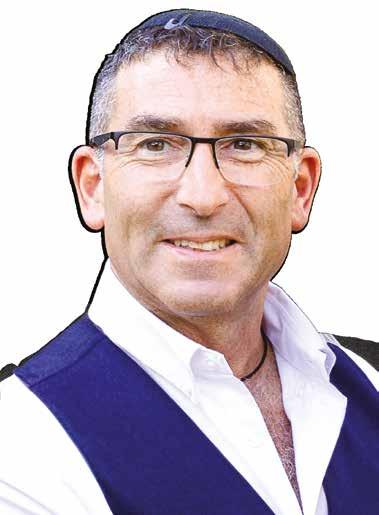
to hope.’ (Celebrating Life p. 175.)
The term mo’ed is derived from the word ya’ad, destination. The mo’adim are end points, the climax of a period of preparation and contemplation. They connect us to the eternal messages of Judaism and vibrant Jewish life, they create memories and traditions within families and in ever widening concentric circles to communities. They allow us to create a legacy that lasts for generations, way beyond our own lifetimes when we have passed on to the beit mo’ed lekol chai ( place of burial) Ironically in Judaism we know that in actuality in death do we meet, rather than in death do we part.
We, the bridge between the past and the future have to make the most of the present and the opportunities that it brings. We are the nation of eternal hope who can still mourn because our dreams are alive and continue to do all that we can to help bring the day when Tisha B’Av will be a Yom Tov, a Moed in the fullest sense of the term.
Rabbi Naftali Schiff is the Founder and CEO of the family of Jewish Futures educational network which includes Aish, Gift, JRoots and others organisations


BY ROBERT FESTENSTEIN
I suspect that few of those reading this will have to think about who I mean in the title. I mean members of the UK Muslim community.
It is easy to say yes to this. Just look at the hate marches, the vitriol on social media and of most concern the victory for 5 people who have become MPs claiming to be pro-Gaza when in fact there is nothing pro about them. Their campaign was all about hating the Jewish State. Since these MPs come from constituencies with large Muslim populations it is difficult to believe that those voting for them were unaware of their attitudes and prejudices. So, does every Muslim hate us? I see that the BBC has started to put articles on line about there being a Muslim vote and a Jewish vote, which seems to me to be seriously unhelpful when analysing the situation. Typical though of the BBC to try and create some equivalence when none exists. The entity The Muslim Vote is not
keen on peace, co-existence or a two-state solution. They and now their MPs are very clear what they want – Israel destroyed. The Jewish vote, such as it is doesn’t want to see any country annihilated and has not taken to the streets chanting a lie about genocide.
So what else do we know. We know that the attempts at interfaith cooperation with the Muslim community has been a disaster. If there have been members of that community supporting us then I haven’t seen them. It may well be that there have been, and if so then I support their bravery because it is clear that the Gaza MPs are not interested in interfaith at all.
Shabana Mahmood MP, the new Justice Secretary needed armed police as the campaign to unseat her by Independent Akhmed Yakoob became vicious and amounted to ‘an assault on democracy’. She said she had faced threats against her, her family, and her supporters and was labelled an infidel and baby killer as a consequence of Labour’s position on a ceasefire. These are the people who now have a voice in the UK Parliament. Their conduct gives another explanation for the lack of Muslims supporting
the Jews. They are frightened or at least nervous that should they say anything which appears at all conciliatory they will be a target for violence. There have been some calls for interfaith to be resurrected. Frankly I cannot see the point. If the events since the 7th October have taught us anything, it is that the previous attempts at engaging with the Muslim community have been a waste of time, and a lost opportunity.
Yitzhak Rabin famously said “You don’t make peace with friends”. He is of course correct, but what if the non-friends don’t want to talk, or worse as we have experienced, have said all the right words, eaten our smoked salmon bagels and then disappeared like the melting snows of spring at the sign of trouble.
For the record, I don’t believe that every Muslim hates us. Far from it. I am though concerned that for there to be 4 MPs voted in on the back of a campaign based on hatred and blood libel there is a very serious issue that needs to be addressed in the Muslim community. Judging by the attacks on Ms Mahmood MP, the Jews are not the only targets for these MPs. There needs to be a different type of interfaith
now. We should be working with those in the Christian, Seikh and Hindu communities who are prepared to work with us instead of banging our heads against a brick wall as we have done. If there is to be contact with the Muslim community there needs to be ground rules clearly set out, which include acceptance of the Jewish right to self determination and the reality that Hamas is the enemy of peace and the Palestinian people. Without that agreement as a starting point, there is no purpose in continuing any conversation. The mission now is to find those who do accept the ground rules and are prepared to work towards building a meaningful relationship which of necessity will be wholly different from the past.
Robert Festenstein is a practising solicitor and has been the principal of his Salford based firm for over 20 years. He has fought BDS motions to the Court of Appeal and is President of the Zionist Central Council in Manchester which serves to protect and defend the democratic State of Israel.


6-bedrooms, detached house only 10 minutes from Ra’anana. Basement and private garden with pool. Spectacular views 667 sqm plot | 270 sqm built

Unique detached home located on the edge of the western ridge, first line to the sea with panoramic views and private pool. 700 sqm plot | 262 sqm built
5-bedrooms, semi-detached house in the desirable Buchman neighbourhood. 162 sqm built plus option for additional unit with private entrance.

The National Jewish Assembly (NJA) strongly condemns the recent statements made by Rt Revd Rachel Treweek, Bishop of Gloucester, who labelled Israel as an “apartheid state” in an article she authored and published on the Diocese of Gloucester website on July 16. Such claims are not only factually incorrect but also dangerously misleading. The NJA is honoured to have the support of many within the Christian community who stand firmly with Israel, recognising its commitment to democracy and the protection of religious freedoms.
Bishop Treweek’s assertions ignore the reality that Israel is a vibrant democracy where citizens of all faiths, including Christians, Muslims, Jews, Druze, and Bahá’ís, enjoy equal rights and freedoms. Unlike its neighbours, Israel ensures that Christian communities thrive and practice their faith without fear of persecution. This stands in stark contrast to the plight of Christians in other parts of the Middle East, where Islamist terrorists regularly massacre, expel, and persecute Christians.
The NJA suggests that Bishop Treweek redirect her focus towards the severe injustices faced by Christians in countries such as Egypt, where Coptic Christians face systematic discrimination and violence, or in Syria and Iraq, where Christian communities have been decimated by ISIS. These regions, not Israel, are
where true apartheid and persecution exist.
Moreover, the NJA is deeply troubled by the selective outrage demonstrated by Bishop Treweek. Her surprise at the absence of a third Palestinian Intifada and her statements ignore the continuous threats and violent actions perpetrated by Hamas, Hezbollah, and other Iran-backed terrorist groups who actively target Israeli civilians.
As highlighted by numerous human rights observers, all citizens of Israel, regardless of their ethnicity or religion, suffer from the terror inflicted by groups like Hamas and Hezbollah. Yet, in Israel, these diverse communities live side by side in peace and equality.
The NJA reiterates that the narrative of Israel as an “apartheid state” is a falsehood that undermines the genuine struggles against real apartheid and systemic discrimination faced by countless individuals globally. Israel’s legal and social frameworks ensure that all its citizens, including Christians, are protected and can participate fully in society.
A recent open letter expressing dismay over the Knesset’s vote against the establishment of a Palestinian state raises significant concerns that require a detailed and principled rebuttal. The call for the establishment of a Palestinian state is not only historically unsubstantiated but also dangerously ignores the current
geopolitical realities. Now is simply the wrong time.
The concept of the Two-State Solution (TSS) has been proposed and rejected numerous times throughout history. The Peel Commission of 1937 first suggested partitioning the land into Jewish and Arab states. The Jewish leadership accepted the proposal despite its limitations, but the Arab leadership rejected it outright. This pattern of rejection continued with the United Nations Partition Plan of 1947, which the Jewish community accepted, leading to the establishment of the State of Israel.
The Arab states, however, rejected the plan and launched a war against Israel. Camp David Summit in 2000 and the Annapolis Conference in 2007 saw Israeli leaders offering significant concessions for peace, including substantial portions of Judea and Samaria (the West Bank) for the establishment of a Palestinian state. Each time, these offers were met with rejection and, in many cases, violence.
The 2005 unilateral withdrawal from Gaza serves as a poignant lesson in the risks associated with conceding territory without guarantees of peace and security. Israel dismantled settlements and removed military presence, hoping to foster peace and cooperation. Instead, the territory quickly became a Hamas terrorist base. Territorial concessions do not necessarily lead to peace, especially at the present moment.

Polling data from the Palestinian Center for Policy Survey and Research reveal a troubling level of support for Hamas among Palestinians in Judea and Samaria. Even after the horrific October 7th attacks, which saw the murder of innocent Israeli civilians, support for Hamas remains extremely strong. This reality underscores the deep-seated resistance within Palestinian society to any genuine peace process that involves recognising Israel’s right to exist. Furthermore, both the Palestinian Authority (PA) and Hamas propagate antisemitic
and anti-Israel ideologies through school textbooks and state-sponsored media. The PA’s policy of paying stipends to the families of terrorists further incentivises violence and undermines any potential for peace.
The establishment of a Palestinian state poses significant security risks to Israel, particularly given its geographical proximity to major Israeli population centres. Israel’s coastal plain, home to the majority of its population, would be within striking distance of a Palestinian state, potentially turning these areas into frontlines akin to Sderot, which has endured relentless rocket fire from Gaza.
We must address the obvious elephant in the room and dispel the fantasies of Western so-called progressives: if a Palestinian state were established today, it would almost certainly devolve into a militant Islamist terror state devoid of any semblance of democracy, rule of law, freedoms, or liberties. The bureaucratic ineptitude and corruption of the Palestinian Authority, coupled with the violent Islamist ideology of Hamas, would create a state that perpetuates conflict rather than fosters peace.
It is essential to respect the democratic processes of the State of Israel. The Knesset, as the democratically elected representative body of Israel, reflects the will of its citizens. While the diaspora has a vested interest in Israel’s future, it is not our place to countermand the decisions made by Israel’s sovereign government. The recent Knesset vote reflects a realistic and historically informed perspective on the viability of a Two-State Solution under current conditions.
Moreover, Pew Research Center polling in September 2023 of Israelis (Jewish and Arab) revealed that only 35% of Israelis think “a way can be found for Israel and an independent Palestinian state to coexist peacefully.” The prospects were bleak and fading before October 7, and have likely plummeted since. Put simply, it’s a total non-starter for the foreseeable future.
Calls for the establishment of a Palestinian state must be tempered by the hard lessons of history, the current support for terrorism within Palestinian society, and the severe security risks involved. As the time-honoured wisdom of King Solomon reminds us, “For everything there is a season, and a time for every matter under heaven.” Now is not the time to press for a Palestinian state. It is a time to ensure security, stability, and genuine peace for Israel and its people.
MedEx is brought to you by the International Medical Aliyah Program
This unique event provides doctors and medical students with the opportunity to meet with representatives from across the Israeli medical establishment.
MedEx is the only place where you can:
• Have your documents certified in person
• Begin the process of transferring your
• Interview with Israeli hospitals and medical clinics
• Discuss your Aliyah plans
– all under one roof!






Please note: The views of the letters do not necessarily reflect the views of this newspaper. Letters may be edited and publication is at the discretion of the editor.
Dear Editor
Normally, when a highly controversial political decision is taken, the decision-maker is expected to be able to justify the decision in political terms, and a debate then ensues on the merits of the decision taken. Political decisions, after all, are decisions on issues in respect of which people reasonably disagree.
Where that constructive force of politics often loses its way, and trust in politicians is often eroded, is whereagainst all the evidence to the contrary - it is pretended that the decision was not political at all. May I suggest that this is exactly what happened last week, when the new Labour Government announced it will not proceed with its Tory predecessor’s proposed legal objection to the ICC Prosecutor’s request for arrest warrants
against Benjamin Netanyahu and Yoav Gallant.
The thrust of the proposed UK objection was about jurisdiction - in essence, whether the ICC was able to rule on this case “in circumstances where [under the Oslo Accords] Palestine cannot exercise criminal jurisdiction over Israeli nationals”. This was set out in the 15 pages of well-reasoned legal arguments from the previous UK Government. That government having requested leave from the ICC to submit these observations under Rule 103 of the ICC’s Rule of Evidence and Procedure, the only thing left for the new UK Government to do was to finalise them and press send.
The fact that the new UK Government then decided not to do so could only have been for one of two reasons - legal, or political.
We know that legal reasons weren’t behind the decision. Nothing has come out to suggest that the new Government reconsidered its legal advice and judged that anything in those 15 pages was wrong in purely legal terms. So that leaves just one remaining possibility. And in my view, this is exactly why the Jewish Leadership Council and the Board of Deputies very quickly observed that, short of any other reasons being offered up, this decision was in fact a “significant shift in ... [and] reversal of long-term UK foreign policy”.
And yet strangely, there has been a very enthusiastic effort to downplay the claim that this was to do with politics at all. The UK Government said that the matter was simply one “for the court to decide”, that it believes strongly in the separation of powers and the rule of law”, and that “the courts have already received a number of submissions on either side, so they are well seized of the arguments”. Several journalists repeated this line - that it was simply a “belief that international courts should be free to investigate allegations against our allies [who] should be subject to the same legal processes as others”, and “a sign the UK Government recognises the Court’s power to make legal decisions”.
This is unmitigated nonsense. The reason the UK Government is able to submit these observations in the first place is because it is its legal *right* to do so – a right granted directly by the ICC itself in Rule
103. And the right exists so that the ICC has the chance, through third-party interveners, to encounter legal arguments it might not have considered from the parties themselves in their oral or written submissions. Are all of those interveners undermining their belief in the ICC, its independence and the international rule of law by exercising the very right they have been given by that framework? The answer is obvious.
What is so odd about all this is that there is absolutely nothing wrong in and of itself with fronting up and saying this was a political decision, knowing that many will (rightly, in my view) strongly and sincerely disagree with you. That is politics. But unfortunately, it is now all too common for our elected politicians to shy away from justifying in political terms the decisions they occasionally must make on the most controversial and fraught questions of our time, and to confront the political cost. Far easier now, it seems, to pretend it was never political at all.
So, yes, the decision is nakedly political. Yes, it is a significant shift in the UK’s long-term foreign policy, away from Israel – the BoD and JLC were entirely correct to point that out. And it insults our intelligence to suggest that it was ever about anything else.
Naji Tilley, London NW4
On Tuesday 23rd July, over 120 participants joined JNF UK for an insightful session with Major General (Res.) Uzi Dayan as part of their online “Voices from Israel” series. Uzi Dayan has had a distinguished career, including roles as Deputy Chief of Staff of the IDF, Head of the Israeli National Security Council, and as a former member of Israel’s Knesset (parliament).
In his interview conducted by JNF UK’s Dana Zohar, Dayan discussed the multifaceted threats posed by Hezbollah, Lebanon, and other terrorist organizations that continue to target Israel. Dayan noted that Hezbollah, possessing more rockets than Hamas, is a significant threat with escalating tensions in the region. Hezbollah is continuously launching attacks on Northern Israel causing casualties, severe infrastructure damage, and widespread fires. These attacks have severely disrupted the lives of residents, with 60,000 Israelis evacuated from their homes and hundreds of thousands remaining under constant rocket threat. Dayan also emphasized the critical threat posed by Iran, stating that if Iran achieves nuclear capability, the existing problems will be compounded by a new, significant threat with widespread implications, potentially leading other
Middle Eastern countries to seek similar capabilities. Ending on a hopeful note, Dayan expressed his belief that Israel will become more democratic, and stronger in the future.
JNF UK CEO Elan Gorji stated: “ We are incredibly grateful to Major General (Res.) Uzi Dayan for sharing his invaluable insights into the current conflict. His expertise offers a crucial perspective on the severe and ongoing threats that Israel faces, particularly in the North. While much attention has been focused on the South, it is vital to raise awareness of the suffering of hundreds of thousands of citizens in the North living under constant threat and the tens of thousands who have spent nine months in temporary accommodation across Israel.
JNF UK will continue to support and stand with the communities impacted by the events of October 7, helping them heal, rebuild and strengthen. Our work extends beyond immediate relief, aiming to ensure a safe and resilient future for all Israelis, whether in the South or the North.”
To watch the live recording of the event visit: www.jnf.co.uk/uzidayan
JNF UK has supported communities devastated by the events of October 7. JNF UK’s projects now focus on healing,
rebuilding and strengthening Israel and its people. Find out more about
www.jnf.co.uk/
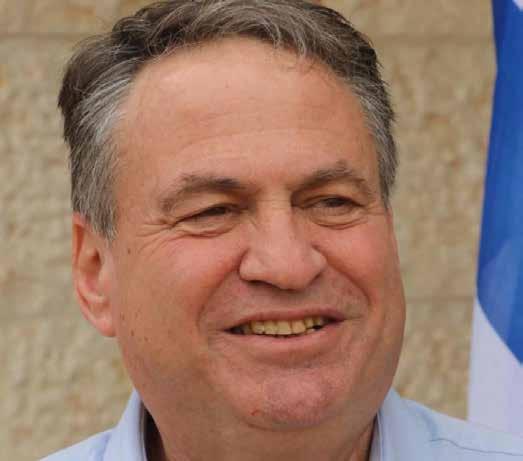
Uzi Dayan











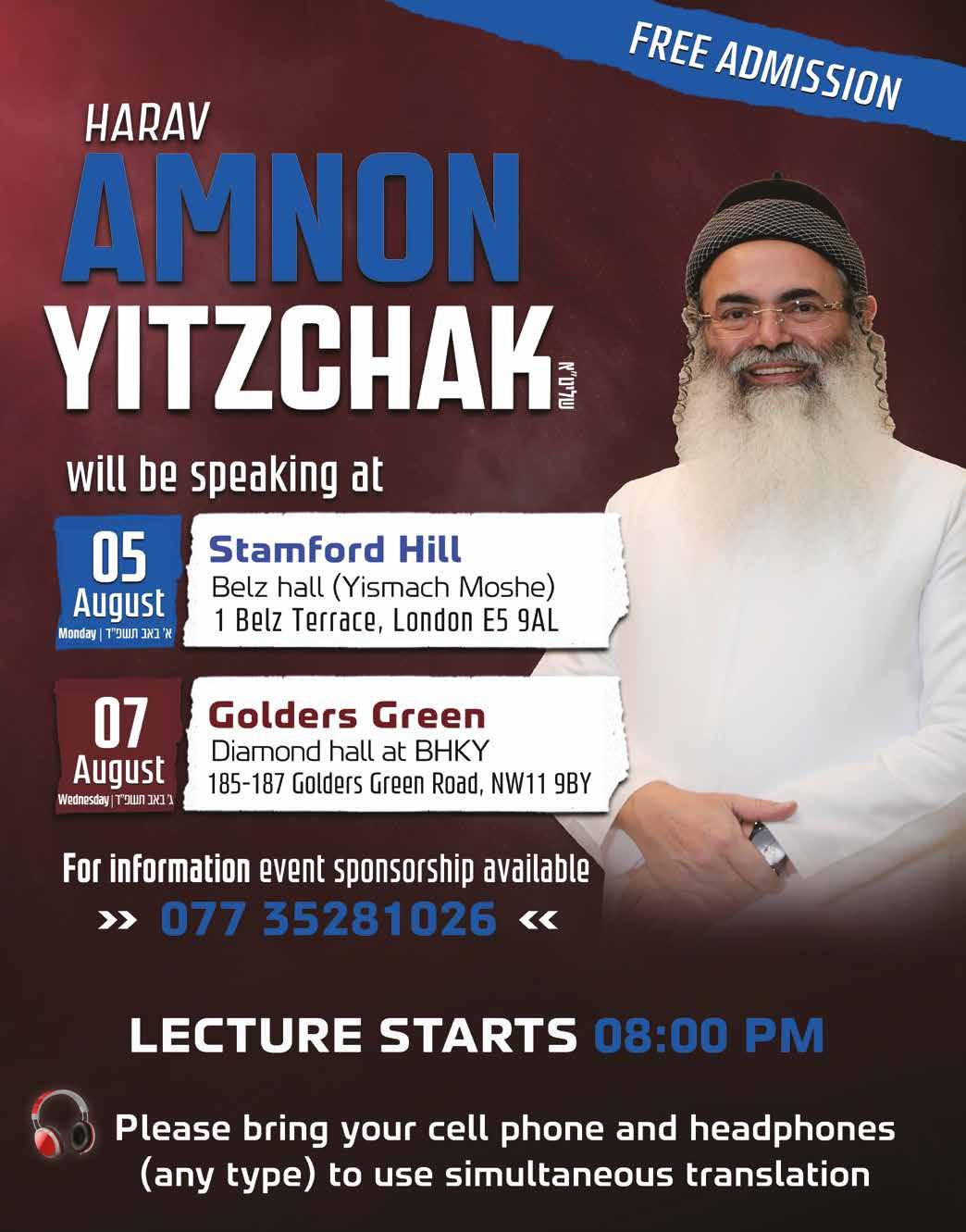

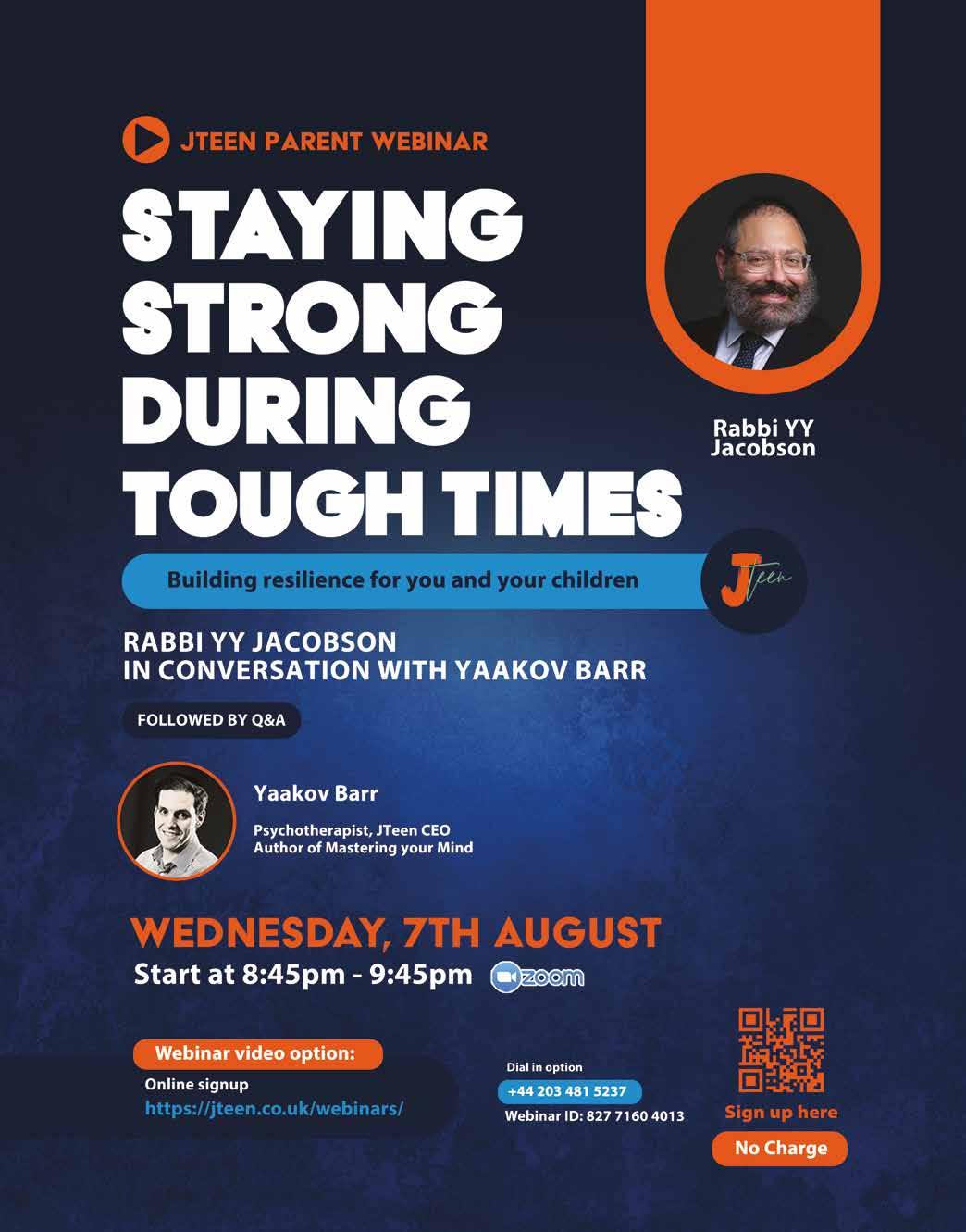
Teachers are relying on the Chai in Schools programme to support the increasing number of young people affected by a cancer diagnosis, either directly or through a loved one.
Over the past year (July 2023 – June
2024), Chai in Schools has delivered more than 2,200 specialist sessions to educators and children at Jewish and non-Jewish schools across the country. Launched in 2013, Chai in Schools is a unique initiative that gives teachers and

As we enter the period known as the Three Weeks, the focus turns once again to the dangers and pitfalls of Sinat Chinam, hatred without reason; this having been the catalyst that led to the destruction of both our beautiful Temples. We have witnessed, all too often, the damage caused by toxic relationships, from an individual to a universal level. Living in the current climes, we are sadly all too aware of the impact that Sinat Chinam can have on us all. I don’t believe there is a single Jew who can truthfully say they have not somehow been negatively impacted by the blatant Sinat Chinam that we are currently experiencing in our world. The challenge for us all is can we flip this? Can we create an atmosphere of Ahavat Chinam, loving without reason rather than Sinat Chinam?
On a macro level, this may well be far too ambitious. However, Rav Yisrael Salanter once said, “When I was young, I wanted to change the world, and I tried, but the world didn’t change. So, I decided first I will change my town, but my town didn’t change. So, I said, then I will change my family. I tried, but my family didn’t change. And then I realised, first I have to change myself.”
Rav Salanter’s realisation underscores the importance of starting with oneself to effect positive change in the world, to take the first steps towards Ahavat Chinam.
This idea is brought out in the Hebrew word Ahavah, love which is based on the root word “hav”, which means “give”. In other words, loving is based on giving. In order to turn Sinat Chinam into Ahavat Chinam, we need to GIVE. Not just from
our pockets, but to give our time, our care our knowledge, or even just a smile. The power of performing a random act of kindness is immeasurable. It has the power to uplift and transform both the giver and the receiver. Whether it’s for a stranger or for a close family member, these small, spontaneous gestures create waves of positivity. Kindness is contagious; one good deed can inspire another, creating a chain reaction of kindness. One small act really can make a huge difference.
As we reflect on the lessons of the Three Weeks and the devastating effects of Sinat Chinam, it becomes clear that we each hold the power to initiate change through acts of Ahavat Chinam. Just as Rav Salanter discovered the transformative potential of personal change, we too can start by fostering unconditional love and kindness within ourselves. By embracing the essence of Ahavah, rooted in giving, we can extend love through our actions. If each of us commits to these small acts of giving, we can collectively create a ripple effect that transforms our families, communities, and ultimately, the world. Let us take up the challenge and become the embodiment of Ahavat Chinam, turning the tide of hatred without reason, into boundless love.
Shosh Hill is the Bnei Mitzvah coordinator at GIFT, having previously been the Head of Jewish Studies at Kerem School. Shosh is on a mission to encourage and inspire all Bnei Mitzvah students to be involved in acts of GIVING as they prepare to become Bat/Bar Mitzvah. She can be reached on shosh@jgift.org
Special Educational Needs Coordinators (SENCOs) the tools, language-skills, resources, and direct support that they need to help children, and their peers, affected by a cancer diagnosis.
As well as providing support to young people and adults in a school-setting, the organisation continues to promote awareness amongst children through the annual Chai ‘Mad Hair Day’ campaign –where children are encouraged to don a creative hairstyle and assemblies are led to encourage open conversations around cancer.
Miriam Kaye, the headteacher of Mathilda-Marks Kennedy Jewish Primary School in Mill Hill, north-west London, called Chai in Schools when confronted with a heart-breaking situation.
She explains: “This year, we received some devastating news. We were told that the parent of one of our young students had been diagnosed with terminal cancer. It was a real shock. Some children were having nightmares, not sleeping, and asking questions that we did not
know how to answer. As teachers, we were floundering. We did not have the training or language when it comes to supporting children affected by illness or bereavement.”
Mrs Kaye adds: “I called Chai asking for support and within 24 hours, Chai sent a team to deliver special training for our staff, talking through appropriate language to use and what books to read. They really listened to concerns our staff had and gave clear examples of how to deal with a situation that could come up. The Chai in Schools training meant that there was a plan in place, we were providing support in the best way possible to the child affected, their classmates, parents and our own teachers.”
Lisa Steele, Chai’s Chief Executive, says: “It’s crucial that teachers have the right training and tools to talk to students about such delicate topics. Chai in Schools equips them with those tools, ensuring children receive the understanding and support they need in their familiar school environment.”


London School of Jewish Studies held its annual graduation ceremony at Hampstead Garden Suburb Synagogue.
Students from teacher training and degree programmes received certificates from Chief Rabbi Sir Ephraim Mirvis. The ceremony was dedicated in honour of LSJS’ deputy principal Rabbi Dr Abraham Levy zt”l, and featured an inspiring speech from David Dangoor.
Chief Rabbi Mirivs, LSJS President, spoke of LSJS’ responsibility for education.
He said: “LSJS perfectly embodies the mitzvah of education by ensuring we have excellent educators in our community. The facility is available in such an outstanding way.”
Dangoor spoke about his father’s emphasis on the importance on education and giving something back. He was also pleased to see Rabbi Levy honoured for his role as a rabbi and realising his dream of founding
Naima Jewish Preparatory School.
“These are difficult but exciting times to be in education, but if our graduates are always open to accepting big challenges, they will have much success in their careers,” he said.
Dr Helena Miller, Director of Degrees and Teacher Training Progammes, commented: “The training we provide is about developing passion, drive and effecting positive change in Jewish education, all of which is vital for the development of our communities.”
Graduates celebrate with friends and family, and thanked teachers. Families travelled from America and the Nether-
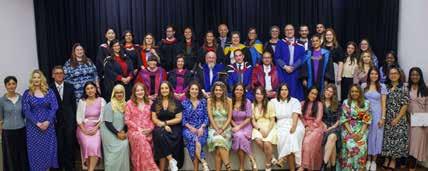
lands to join a special event.
“LSJS’ teaching staff have guided us as individuals and as a group, we could
not have wished for a more patient and inspiring group of teachers on what has not always been an easy road,” said MA Jewish Education graduate Vicky Sweiry Tsur.
“I am privileged to see every day what our teachers and students learn and the dedication to their vocation, both at the earliest stages in their careers and as they progress with the guidance of our expert team,” said LSJS Chief Executive Joanne Greenaway. “All our graduates have undergone an incredible transformation.”
LSJS offers qualified teacher status (QTS) from School Direct (Primary and Secondary) to School-Centred Initial Teacher Training (SCITT) and Assessment Only.
As well as teacher training, LSJS provides BA (Hons) and MA in Jewish Education, validated by Middlesex University, accessible to students around the world. Applications are open for a part-time BA (Hons) Jewish Education in September and MA in January.
StandWithUs UK is deeply honoured to be chosen by JFS, along with CST and Hope not Hate, for their annual Social Action scheme focusing on combating antisemitism and promoting Jewish advocacy.
“This endowment is a testament to the incredible partnership we have with JFS and their dedication for educating about Israel and deepening the students’ connection to their heritage,” said Isaac Zarfati, Executive Director of StandWithUs UK. “We are grateful for their trust and support, which will enable us to expand our educational initiatives and continue our vital work in the community.”
Yehuda Fink, Director of Education at StandWithUs UK, added, “Education is the most powerful tool we have to
combat ignorance and prejudice. This generous endowment from JFS will allow us to reach more students, providing them with the knowledge and confidence to stand up against antisemitism and be proud of their Jewish identity.”
This selection by JFS reflects significant trust in StandWithUs UK’s efforts to bring education about Israel and counter antisemitism in UK schools. The donation supports our mission of empowering the community through education and highlights the values and dedication of the JFS community. We take pride in standing with JFS to foster Jewish pride and a connection to Israel.
Thank you, JFS, for your unwavering support and for motivating us to prioritise educating the next generation.

IN-PERSON AND ONLINE PROGRAMMES FROM JEWISH FUTURES
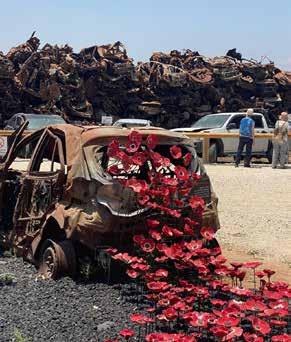

MONDAY EVENING 12 TH AUG
20:27 FAST STARTS
21:00 MAARIV, EICHA AND KINNOT
Followed by הלילב הכבת הכב –feeling the Churban with heartfelt niggunim
21:00 ONLINE EICHA
Followed by HEARTFELT INSIGHTS FOR WOMEN
With Rebbetzins Shalvie Friedman, Miriam Gefen, Yael Roodyn & Adina Strom
22:30 ONLINE PROGRAMME: FEELING THE CHURBAN IN A POST-OCTOBER 7TH WORLD.
TUESDAY MORNING 13 TH AUG
08:30 SHACHARIS AND KINNOS: SHARING OUR PAIN
Followed by "B'TZELEM ELOKIM": A SHOCKING REALISATION AT THE EICHMANN TRIAL
Optional talk by Rabbi Yaakov Klein
11:30 WOMEN'S PROGRAMME
Led by Rebbetzins Shalvie Friedman, 13:05 HALACHIK MIDDAY
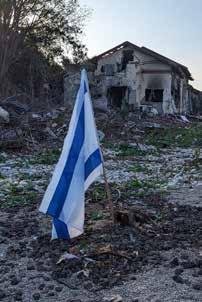
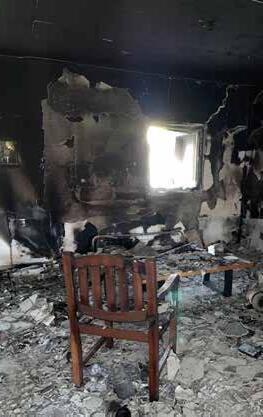
TUESDAY EVENING 13TH AUG
18:15 UK PREMIERE (IN-PERSON SCREENING):

OCTOBER 7 TH VOICES OF PAIN, HOPE AND HEROISM
With concluding words from Rabbi Naftali Schiff
19:45 ONLINE: SCROLLS OF FIRE: THE HIDDEN BOOKS OF THE HOLOCAUST Rabbi Yonasan Roodyn
20:00 MINCHA
20:30 "WHERE DO WE GO FROM HERE?" Rabbi Daniel Rowe introduced by Rabbi Naftali Schiff
21:05 MAARIV
21:13 FAST ENDS & REFRESHMENTS
BY SIVAN RAHAV MEIR - TRANSLATED BY YEHOSHUA SISKIN, JANINE MULLER SHERR FROM MAJDAL SHAMS TO JERUSALEM
1) The 12 children were murdered in Majdal Shams in a Hezbollah attack have been laid to rest. Significantly,
but the real focus of this conflict is Jerusalem.
3) Then, speaking beautiful words of consolation, the navi tells us how G-d remembers the 40 years in which we followed Him through the desert: “Thus said G-d: ‘I accounted to your favor the devotion of your youth, your love as a bride— how you followed me in the
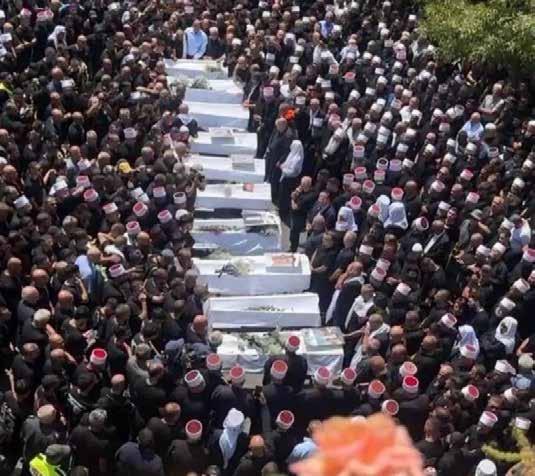
last Shabbat morning we read the haftarah from Yirmiyahu which states: “From the north shall disaster break loose…” referring to the Babylonians who conquered Eretz Yisrael before the destruction of the First Beit HaMikdash. Just a few hours later, disaster struck in northern Israel.
What we need to internalize is that the enemy aims to kill — no matter whether the victims are soldiers or children playing soccer. For Hezbollah this was no accident; it’s their modus operandi. We are justifiably horrified that Hezbollah managed to strike its target on this occasion, but we must never lose sight of the fact that each missile launched over the past few months was meant to end the same way.
2) Yirmiyahu continues: “…every one shall set his throne at the entrance of the gates of Jerusalem, against all its walls all around.” In other words, the enemy won’t be satisfied with strikes in northern Israel; its main target will be Jerusalem. In contemporary terms, the attack on Majdal Shams was an important symbol,
events as of the beginning of this week. In the first, after a Hezbollah missile killed 12 children in the northern village of Majdal Shams, the bridge at the entrance to Israel’s capital was illuminated with the Druze flag, as a sign of solidarity. And while, at the time of this writing, all are conjecturing how and when Israel will respond, the second photo shows a small but significant response: 35 Jewish students from the wonderful MJE educational centre in Manhattan arrived in Israel, led by Rabbi Mark Wildes, for a week of volunteering, learning, and gaining and giving strength. Welcome home.
“Talk to us about growth through crisis!” was the request from the audience - inmates at the Neve Tirza women’s prison, where I spoke last week.
wilderness, in a land not sown.”
Yirmiyahu recalls a story of kindness, devotion, and commitment— an eternal covenant of love between G-d and Israel. Whenever we are faced with a challenging period filled with fear and uncertainty in which we feel as desolate as a “desert,” we must remember that it is precisely trials such as these that are transformative in the life of a nation or individual.
4) Our haftarah ends with the punishment that was meted out to our enemies: “Israel was holy to G-d, the first fruits of G-d’s harvest. All who ate of it [the enemies of Israel] were held guilty; disaster befell them—declares G-d.”
We extend our deepest sympathies to the Druze community and to the residents of the Golan Heights, and we pray that these moving prophecies of consolation will soon come true.
The following two photos from Jerusalem most accurately sum up the
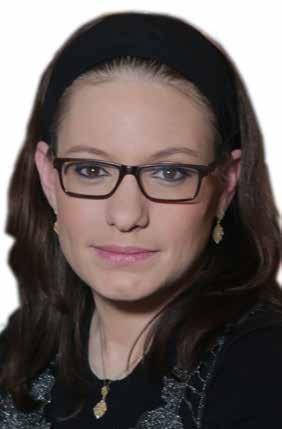
the request of families.
“Maybe that’s the most important lesson,” I told them. “You are also part of the story. I didn’t come to tell you what’s happening outside; with your actions,
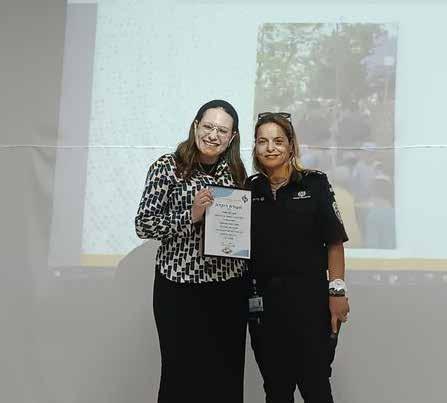
The prison rabbi, Rabbi Evyatar Greenfeld, reminded me that, “None of the women ended up here just out of the blue; there are always extenuating circumstances. The main thing is to help them look forward to a better future.”
So, how do you talk about growth through crisis with individuals who have committed crimes and have been ostracized by society? We discussed Biblical figures whose tragedies caused them to grow and elevate themselves, but mostly, I wanted to hear about their lives. As it turned out, they’d accomplished a great deal since Simchat Torah.
Those with permission to leave the premises had gone to volunteer in the Gaza border area, picking fruits and vegetables. Others created artwork and wrote letters that were sent to bereaved families and families of captives, touching their hearts. They also regularly recite Psalms and other prayers, with specific names of soldiers and captives at
you influence what happens outside. Everyone, even in the toughest situations, can contribute.”
At the end of my talk, prison commander Vered Rafaeli took the stage and explained the meaning behind the name of the institution: Neve means an oasis, a place of hope in the midst of desolation; Tirza is the daughter of Zelophehad, one of the righteous women mentioned in last week’s Torah portion. What she said next surprised me. “The name Tirza comes from the root word ‘to run,’ implying motion, progress — and indeed, the vast majority of our inmates move forward and do not return here. We have a much higher rehabilitation rate than the male prisoners.”
Even within those prison walls, the journey towards a brighter future begins with small steps, moving forward.









BY RABBI MOSHE TARAGIN
WORDS MATTER. WORDS HAVE MEANING. WORDS CREATED OUR UNIVERSE.
Hashem created the world through ten verbal pronouncements beginning with His declaration that “there should be light” and concluding with His announcement that Man should “procreate and inhabit the world”.
Thousands of years later, Hashem crafted a moral and religious foundation for all humanity through the Aseret Ha’Dibrot, first spoken and afterwards carved into stony luchot. Both our physical world and our spiritual experience were fashioned through divine words.
Hashem gifted humans with the capacity for creative speech, similar to His. Though many animals communicate, they do so in a very rudimentary manner. They convey to one another basic survival needs such as feeding, migration, protection from predators, mating and reproduction, and territorial marking. Some even enjoy basic social interactions. Unlike animals though, humans employ complex language to communicate abstract ideas, share emotions, express imagination, build deep emotional bonds and to form communities and societies. We think in words. We articulate our thoughts through the language we employ. The richer our vocabulary, the more nuanced and precise our thinking. Words clothe our ideas.
For centuries, humanity was deprived of the basic right to freedom of speech. With the advent of democracy, we were granted this freedom and the divinely endowed potential of Man was unleashed. The manner in which we wield our tongue and use our speech reflects our elevated and noble status as the masterpiece of creation.
We behave most similarly to Hashem when we employ language to create new realities. Jewish law empowers us to utilize language to take personal oaths and to partially reshape the legal landscape. Through nedarim and shavu’ot halacha authorizes us to employ personal oaths to obligate charitable payments, pledge korbanot, or even prohibit items which are permissible for the general public. Just as Hashem created this world through speech we are empowered to partially relandscape our own personal world through speech.
This powerful tool of language can be mishandled or not fully respected. To insure that creative language is taken seriously, the laws of nedarim were not delivered the general population, but first to the nesi’im or tribal leaders who were
tasked with conveying these laws to the general population, while emphasizing the importance of language. These leaders could better appreciate the gravitas of language.
Language forms the basis of our reality and is the cornerstone for both personal identity and human interaction. Without clearly defined language, our experiences become muddled, and the fabric of our communal life unravels.
The modern world has profoundly disrupted the meaning of language. The philosophy of post structuralism asserts that meaning is not fixed but fluid and unstable. Meaning is based on cultural, historical, or situational factors. What we consider to be ‘true’ or ‘real’ is influenced by power relations and social constructs. This post-modern approach views all truth as subjective and relative.
This theory has deeply influenced our definition of morality, gender and society. Additionally, it has deeply affected the way modern culture views language, and in turn, the way it uses language.
Poststructuralists argue that language does not reflect any objective or absolute reality but that the meaning of words and texts is always in flux, influenced by context and interpretation.
Samuel Johnson the 18th century English writer, lexicographer, and critic who explored the meaning of language commented “ Words without meaning are nothing but empty vessels”. Our world has become littered with empty vessels.
The recent eruption of antisemitism has been fueled in large measure by this modern philosophy. Words that are meant to convey specific meanings are being distorted to reflect ideas entirely divorced from reality. Our enemies are twisting and misrepresenting words, using them as weapons against us.

Words do not reflect any essential truths and there is no objective or absolute reality underneath our words. Once language is no longer viewed as absolute, but merely a product of social constructs, words, symbols and phrases can easily be bent and twisted to assume new meaning based on differing social attitudes and cultural filters.
To summarize, post structuralism denies any objective meaning or reality, instead viewing everything as contextual. As a consequence, language has no absolute meaning but can be “assigned” meaning based on context and culture. This subjectivist view of reality, meaning, and language undermines the possibility of objective knowledge, making it impossible to distinguish between credible and non-credible claims. No single interpretation or truth is deemed more valid than another. Likewise, if all perspectives are equally valid, it is impossible to argue for objective morality, absolute justice, or ethical standards.
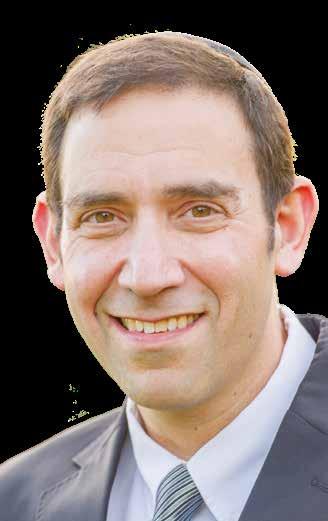
Israel is roundly accused of maintaining an open-air prison in Gaza. We closed this border to protect ourselves against murderers who never hid their intent to murder Jews and on October 7th acted upon that intent. We have always allowed abundant goods and services to flow through Azza. Tragically, many resources were diverted to construct the machinery of death.
A prison is only effective if every side is walled off.
The Egyptians haven’t allowed Gazans to cross their border, but no one accuses them of complicity in this “imprisonment”. Nothing in Azza even resembles a prison, but in a world of ambiguous language, any term can be redefined to signify something entirely different from its true meaning. After all, there is no objective or underlying reality. Just place a hashtag near the phrase “open-air prison” and see how many likes you receive from a disenchanted generation “X”.
Our haters accuse us of operating an apartheid state. Yet, every citizen in Israel, regardless of race, religion, or gender enjoys full legal rights. There are Arabs and Moslems on the Supreme court and in the government. In fact, many Moslem countries are much closer to being apartheid states as Jews and Christians face severe cultural and religious restrictions. Yet the odious term of “apartheid” is baselessly lodged at the only full-blown democracy in the region. Why bother examining the meaning or origin of a term when it can be indiscriminately used in any way someone chooses? Suddenly
every music performer, cultural influencer, and Ivy League college sophomore is a world expert in the institutionalized racial segregation which plagued South Africa in the latter part of the 20th century. Welcome to the theater of the absurd where hate masquerades as knowledge. We are being prosecuted in the halls of justice for committing genocide. Israel has the military capacity to eliminate every Gazan citizen if it chose to, but instead has done more to protect its civilian population than any army in modern era. The population of Gaza has nearly doubled since 2007, when Hamas maniacs took control of the region and began to pose a threat to us. Hamas openly speaks about annihilating every Jew, yet we are falsely accused of this crime. Words have become hollow, and speech has turned into a political charade.
It is no coincidence that the hollowing of language and the erosion of meaning are being driven by modern academia. This community has deeply embraced postmodernist views on meaning and language, and this war showcases the absurdity of language drained of meaning.
This war is also a cultural struggle over truth and over language. Do words matter? Do words mean anything? Do our words reflect reality. Without foundational truths and without absolute meaning to our words society will collapse. We will suffer the same fate as the Tower of Bavel a culture which lost its language and suffered the rupture of communication. Our tower is crumbling. Hopefully we can save language and save our culture.
The writer is a rabbi at Yeshivat Har Etzion/Gush, a hesder pre-military yeshiva, with ordination from Yeshiva University and a master’s in English literature from CUNY. He is the author of Dark Clouds Above, Faith Below (Kodesh Press), which provides religious responses to Oct. 7.


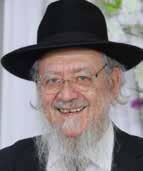
BY RABBI YAKOV SCHONBERG
Bava Basra
26a relates that Rava, son of Rav Chanan, had date trees next to a vineyard of Rav Yosef. Birds used to roost in the palms and fly down and damage the vines of Rav Yosef. Rav Yosef told Rava: Go cut down the date trees…. Rava said, “I will not cut down the palms myself, for Rav has said: It is forbidden to cut down a palm that bears even just a kav of fruit (from 1.4 liters) per season. Furthermore, R’ Chanina has said: “My son Shikchas died prematurely for no reason other than that he cut down a fig tree before its time, when it was still capable of producing fruit. However, he added: “You, sir, can cut it down yourself if you want.” The mishna on Daf 25b taught that the prohibition against cutting down fruit trees does not apply to a tree that is a source of damage to others. Rav Yosef held that these birds were harming his vineyard by providing a perch for birds that would fly into the vineyard and damage the grapes. He therefore demanded that they be cut down. Rava was not fully convinced by Rav Yosef’s argument that damage can be attributed to the tree in which they perch, but he told Rav Yosef that if you are confident that you are right that the trees are a source of damage, you may cut them down yourself. Tosafos provides an alternative understanding. Rava maintained that the permit to cut such trees applies only if the damage they cause is greater than their own worth, which was not the case here.
We touched on the Torah prohibition of not destroying fruit trees in our Daf Topic on Bava Kama 91b in connection with the subject of Bal Tashchis. Rambam (Melachim 6:8) rules that cutting down trees which damage neighbouring property is permitted because the Torah’s prohibition of not destroying trees, applies only to an act of destruction. Thus, the gemora there permits cutting down a tree whose wood is more valuable than its fruit, even when it poses no threat to the adjacent property. Rosh there takes this leniency a step further and permits removing fruit trees when they occupy space needed for other purposes. This is an extremely common question raised by people wanting to extend their premises over land containing a fruit tree, which needs to be removed. We shall see that although Rambam and Rosh would seem to
indicate that uprooting would be permitted for a valid reason, poskim are reluctant to sanction its removal without certain safeguards. This is based on the danger to life mentioned in the above gemora and in matters of sekanah, poskim are reluctant to rule leniently. How can we understand this sekanah?
Rabbi Yakov Emden (She’ilas Yaavetz-76) dealt with the problem of a shul extension that involved uprooting a fruit tree. He infers from our gemora, where Shikchas’s death is cited as the reason for Rava’s reluctance to remove the trees, that otherwise it would have been permitted. Furthermore, the fact that his untimely passing was attributed solely to this act indicates that he had no other faults to blame for his death. If it would have been forbidden to cut the tree, how could such a tzaddik have transgressed this issur? Evidently, it was halachically permitted but the gemora is teaching us that there is still an element of danger involved. R’ Emden therefore advises that despite the halachic permits, one should introduce safeguards such as having the removal done by a non-Jew. He adds that the issue can be avoided altogether by transplanting the tree elsewhere, as the life of the tree is preserved. Other poskim hold that whatever is permitted by halacha cannot be considered dangerous. Taz (YD116) follows Rosh that if one needs the place, he may cut down the tree, and permitted someone to build his house on land where there were fruit trees, without mention of any precautions. Binyan Tzion (1:61) also disagrees with the Yaavetz and rules that when circumstances permit building, such as for a mitzvah or a valid need, rather than just for added comfort, there is no issue of danger. However, he agrees that wherever it is possible to take steps to mitigate the destruction, such as by replanting, one must do so. This is also the ruling of Chassam Sofer (YD-102). Chida (Chaim Shoal 1:23) agrees with Binyan Tzion that there is no danger in cases permitted by halacha, but points to the will of R’ Yehuda Hachassid (45) forbidding cutting fruit trees. Chida argues that most of the restrictions in the
will were permitted by halacha, yet the will indicates there is danger. He concludes one should ask a non-Jew to uproot the tree and replant it elsewhere. Thus, most poskim advise to transplant the tree or to have it removed by a non-Jew, but some poskim require one to sell the tree to the non-Jew first (Darkei Teshuva 116:51, Yabia Omer,YD1-9:6).

Yaavetz derived the concept of transplanting the tree from Hilchos Orlah, where the fruit of a newly planted tree is forbidden for three years. A tree that was transplanted to another location is considered to have been planted anew and the orlah count restarts. However, if there remains enough earth around the rootball that the tree could continue to survive with that earth, it is as if the tree was never uprooted, and the count does not restart. The problem is in defining what constitutes continuing to live and many larger trees will be very difficult to dig up. Chassam Sofer says that one can only transplant if there is a reasonable chance that the tree will survive the journey and continue to produce fruit. The root system can extend beyond the tree canopy, and it has two functions - they serve to anchor the tree to the ground, and they provide the tree with water and nutrients. The longer roots that secure the tree could be cut and the tree could then be stabilized when replanted with stakes. It is the clusters of fine fibrous roots which feed the tree which are essential for its survival and therefore the rootball should contain as many of those roots as possible. Today the digging and moving of trees is mechanized, using a hydraulic treespade. The spade encircles the tree and large blades are forced into the ground diagonally to form a root ball. Nurseries advise that the rootball be nine inches in diameter per inch of trunk diameter. Thus, a 6-inch diameter tree would require a 54-inch rootball to have a good chance of survival after replanting.
We still need to understand why an act of cutting down a fruit tree should cause someone’s death - there is no death
penalty for this transgression. The pasuk writes in connection with cutting trees when besieging a city ץע םדאה יכ הדשה, for man is a tree of the field. Ibn Ezra explains that destroying a fruit tree is prohibited because this robs people of the source of their sustenance, which is akin to killing a human being. R’ Pinchas Halevi Horowitz (Panim Yafos, Devarim-20:19) explains that the deep connection between human life and fruit trees exists since Creation. Chazal teach that the taste of the wood of the original fruit tree should have been identical to its fruit, but the earth disobeyed and instead brought forth trees which produce fruit but were not food themselves. This deficiency in the tree trunk was echoed in Adam. Originally, mans body was meant to mirror his soul, and both would have been immortal. However, when the trees disobeyed the Divine decree, this resulted in the fact that man’s body, too, did not reflect the immortal nature of his soul. This in turn caused him to partake of the forbidden fruit, which brought about his body’s eventual demise.
Succah 29a teaches that when there is an eclipse, it is a bad sign for the whole world. It then says that on account of four things the luminaries become eclipsed, one of which is those who cut down good trees. Why should a naturally occurring phenomena be considered an ominous sign? Maharal (Be’er Hagolah-6) explains that Hashem created the world with predictable astronomical events. If man would have been on a level above sin, Hashem would have arranged Creation in such a way that the luminaries would never obstruct each other. But Adam did sin, and the nature of how food is produced was by the sweat of the brow. Original wheat grew as ready-to-eat fruit without any processing, but because man is on a level that he succumbs to sin, Hashem arranged the heavens in such a way that eclipses should occasionally occur to remind us that sinful man does not deserve the full radiance of the sun. This arrangement parallels Adam’s status after the sin, and thus too, the defect of fruit trees.
Rabbi Schonberg was born in London in 1948 and attended Hasmonean School. He attended Manchester, Chaye Olam and Gateshead Yeshivos. He qualified as a Chartered Accountant in 1972 becoming a partner at Cohen Arnold.
To contact Rabbi Schonberg, please email, yschonberg@gmail.com
To find out more, you can sign up at mercazdafyomi.com and receive a free gemoroh.

Many victims of the Holocaust were young children under the age of 12 and 13 who did not live to celebrate their Bar or Bat Mitzvah.
You can make sure their names are never forgotten.
Complete the on-line Twinning Form to make your day even more special by sharing it with a child Holocaust victim who was denied a future, and become a link in the chain of the wonderful miracle of Jewish History. A Yad Vashem researcher will find a twin from the vast records whose life matches yours as closely as possible.
The Twinning Pack consists of:
• A Page of Testimony with details of your chosen twin
• A Study Guide
• A certificate
• A letter from a Holocaust survivor
• A Yad Vashem lapel pin
• Memorial and Shabbat candles
• An invitation to become a Guardian of the memory

46 Albert Road London NW4 2SG
Charity No. 1099659



Phone: 020 8187 9881















www.yadvashem.org.uk








Email: office@yadvashem.org.uk
www.guardianofthememory.org
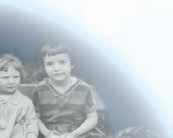
















@yadvashemukfoundation
@yadvashemUK
@yadvashemukfoundation








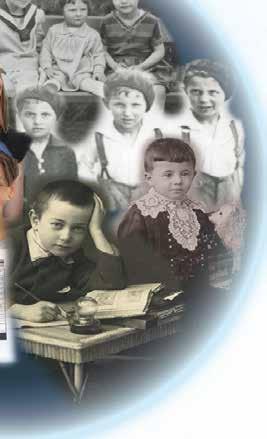



Dear Rabbi
I am married several years and I am struggling in my relationship. I feel everything has gone stale between us and we just co-exist, co-parent etc. The passion that was, is no longer. Even the so-called love isn’t there. I am ashamed to admit that when I look around me I see other men, some known to me personally, one or two who I think would make me much happier. Is this in my head, or should I consider a change before life gets ahead of me. Is there even a way we can get back on track?
Gila
Dear
Gila
Relationships fall apart because people forget the 80-20 rule. If you’re going to marry someone that has 80 percent of what you’re looking for, that 80 percent when love is high feels like 100 percent. But sometimes there’s a struggle and what happens is that 80 percent is overlooked and all you see then is the 20 percent that they don’t have. And then
you suddenly open your eyes to other people and make mental comparisons. They have none of the 80 percent but they have that 20 percent. They have that particular look or that affirmation that you need - and this is when your evil inclination steps in with his big lie - he gets you to give up that 80 percent because of your focus now on the 20 percent that the other person can offer. You end up wrecking your life - you go and lean into that 20 percent and you realise that 20 percent is all that person has to offer. And that relationship never works out. You know why? They were a tactic of the evil inclination to get you to give up what G-d had going so well in your life. Sounds to me like you need to rediscover that eighty percent and perhaps seek professional help to enable you to do so.
Dear Rabbi
You’ve probably been asked this before, but, are all the questions you publish, actually real?

Lindy
Dear Lindy
If I had a pound for every time I am asked that question I could retire already. Do you know what kind of imagination would be required to come up with a slew of new questions every week, which I would then have to answer as well? I am not saying I don’t have that kind of imagination, but, the general rule is this: Everything you say to me can and will likely be used. By definition, if you and I are in a conversation and you suddenly ask me something, then my mind will register whether it is a question worthy of public interest. If it is, you can safely assume to see it in print in the following weeks. If it’s of a more personal nature that will usually include a name change as well.
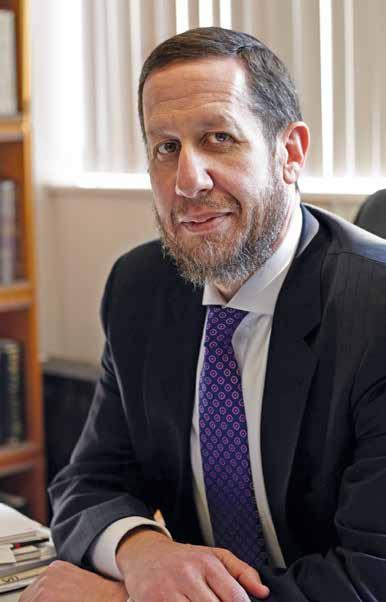
That said, even if I were to make up the questions – as long as there’s an important message for readers to take away then that’s what really matters. I was recently in conversation with someone who is a leading therapist. She told me how she keeps one of my responses discussing confronting challenges on her clipboard alongside other motivational pieces. Surely, for that alone it’s worth it.
Bottom line, I have a backlog of questions that get sent to an allocated email account. Sometimes I receive questions that specifically ask “not for publication,” and I will endeavour to answer those as well. Everyone is welcome to ask whatever they want and you will receive a reply, even if sometimes you might not like get the answer you receive.
Dear Rabbi
We are currently in the three weeks of sadness. After that there are seven weeks of comfort. I know three corresponds to
our forefathers and seven are the days of the week. I don’t know if there’s any connection. Is there significance to these numbers or as they just arbitrary?
Michael
Dear Michael
In Kabbalah there is a concept of the three intellectual faculties (wisdom, understanding and knowledge).There is also a concept of the seven attributes of the heart (kindness, discipline, etc.). Thus in our context the three weeks of mourning the destruction of the Temple and our continued exiled state correspond to our intellect. The subsequent seven weeks of comfort and yearning for redemption correspond to the seven attributes of the heart.
There’s a wonderful saying, “the heart feels what the head cannot understand.” The Lubavitcher Rebbe once explained: The mind cannot fathom the destruction that took place, nor understand the ongoing turmoil in our exiled world. But the heart can feel hope for the redemption when the Temple will be rebuilt and universal harmony will prevail once more.

Can you tell us a bit about your background and how you got into the maintenance field? I have a diverse background that includes experience in hospitality, administration, retail, and cleaning. While exploring different career paths, I came across CBRE and was drawn to the idea of making a positive impact on the work environment for myself and my colleagues. Additionally, witnessing the challenges my mother faces in getting things done inspired me to pursue a career in maintenance. I am motivated to help others, treat them with integrity, and assist them in maintaining their dignity.
What previous roles have you had that prepared you for your position here at Hampshire Heights Ltd? In my previous roles, I have gained valuable experience that has prepared me for the position here. Specifically, my experience as a facilities coordinator has provided me with the necessary skills in managing and coordinating various aspects of facility operations, including maintenance, vendors, and safety protocols. I believe that these experiences have equipped me with the knowledge and expertise to excel in this role at Hampshire Heights Ltd.
Can you describe a typical day in your job? As the Property Maintenance Manager I have encountered numerous emergency
and non-emergency maintenance calls on a daily basis. While some situations require immediate attention, others may not be as urgent. Dealing with tenants can sometimes be challenging, as there are instances of abuse. However, my personal and professional experiences drive me to look past these challenges, finding them both humbling and motivating. My background in council and health and social care has allowed me to relate and understand the situations better. It is crucial to establish boundaries and manage expectations from both tenants and landlords to maintain a healthy relationship while ensuring the properties are habitable. It's essential to strike a balance, seeking to address the needs of all parties involved while maintaining a safe and comfortable living environment.
How do you prioritize and manage multiple maintenance tasks? I prioritize and manage multiple maintenance tasks by organizing my requests based on priority. High priority issues always come first, however, there are some maintenance requests that require constant monitoring depending on the works required. This allows me to address urgent matters promptly while ensuring that ongoing maintenance needs are also adequately met.
Can you share a time when you had to solve a particularly difficult problem at work?

One particularly challenging situation I encountered in property maintenance was when a major water leak occurred in a commercial building. The leak had the potential to cause significant damage to the property and disrupt the tenants' businesses. I immediately coordinated with the plumbing team to locate and isolate the source of the leak. It required working quickly and efficiently to minimize the impact on the property and its occupants. Through clear communication, decisive action, and effective teamwork, we were able to resolve the issue promptly and prevent further damage. This experience reinforced the importance of proactive maintenance and rapid response in preserving the integrity of the property.
How do you see your role evolving at Hampshire Heights? As a valued team member, I envision my role evolving through taking on increased responsibilities, constantly growing, and contributing to the continuous improvement and success of the company.
What do you find most rewarding about your job? I have enjoyed working with the team at particularly because of the great experience of working with Mr. Zee Bensusan. As my GM, he has been extremely supportive and has demonstrated a commitment to ensuring that I understand the nature of the business and the tenants we deal with. His willingness to assist me in my role without hesitation has been instrumental in my professional development.
What do you enjoy doing in your spare time? In my spare time, I find joy in engaging in creative activities such as painting and cooking. I also find relaxation in listening to classical, country, and jazz music. For a burst of energy, I enjoy playing netball, basketball, and tennis
Do you have any hobbies or interests that help you unwind after a busy day? . Ultimately, I find solace in the countryside with a good book and my headphones.





BY RABBI SHMUEL REICHMAN
In 1942, the Japanese invaded the Philippines, engaging in a brutal, bloody war. Hiroo Onoda, a Japanese lieutenant, was dispatched to the Philippines to fight and was instructed that under no circumstances was he to surrender. True to his orders, he fought determinedly throughout the war. But in 1944, when the war ended and the Japanese returned home, something strange happened. Unaware that the war had concluded, and the Japanese had surrendered, Lieutenant Hiroo Onoda remained where he was and continued fighting. He was twenty years old and completely alone, but he remained in uniform, hiding in the jungle, waging a one-man battle. He carried on this mission for almost thirty years, remaining loyal to his orders not to surrender. During this time, he became a legend, avoiding capture and killing over thirty Philippinos.
In the years following the war, the Japanese sent Lieutenant Hiroo Onoda numerous announcements that the war had ended, but he refused to surrender without orders from his commanding officer. In 1974, the Japanese government finally sent Hiroo Onoda’s original commanding officer to find him. He eventually found Hiroo Onoda hiding in the jungle, still wearing his original uniform, still wielding his original rifle, fully focused on winning the war of 1942. When the officer told him that it was time to go home, Hiroo Onoda refused. “I’m following my orders. I was commanded to fight to the death with no surrender!” His officer tried to reason with him. “This is ridiculous, you have to come home. Don’t you understand? The war is over.” But Hiroo Onoda could not be convinced. “Orders are orders. I have to be loyal.” His officer finally pulled out the original demobilization order and read the official order to go home. The moment Hiroo Onoda heard the official
surrender order, he immediately turned over his rifle and went home.
While this story is one of extraordinary commitment and loyalty, it is also one of utter foolishness. For almost thirty years, Lieutenant Hiroo Onoda fought a non-existent war, living in a subjective reality that was completely disconnected from the truth. While this level of loyalty is worthy of admiration, it also begs the question: What is the virtue of faithfulness, and what is its ideal implementation? When is it appropriate and praiseworthy, and when is it inappropriate?
The final eight pesukim in the Torah raise many questions, as they discuss Moshe Rabbeinu’s death. This poses an obvious problem, as Moshe Rabbeinu prophetically received and wrote the Torah. If every word of the Torah is absolutely true, how can Moshe have written of his death while still alive? The Gemara (Bava Basra 14a–15b) suggests two solutions to this problem: Either Yehoshua wrote these last eight pesukim after Moshe’s death, or Moshe wrote these words “b’dim’ah” (with tears).
However, these seemingly straightforward answers actually raise even more questions. First, how is it possible that Yehoshua wrote the last eight pesukim of the Torah? This runs counter to one of the very core principles of Judaism — that Moshe received the complete Torah from Hashem on Har Sinai and wrote it in its entirety. (Even according to the opinion that Moshe wrote the Torah in stages (Gittin 60a), it is incontrovertible that Moshe himself wrote the entire Torah.) Once the door is opened to the possibility of an additional author, where is the line drawn? And if one accepts the other answer, how does Moshe Rabbeinu writing these pesukim with tears solve the problem? If writing with tears is considered writing, then Moshe did write these last eight pesukim, and the substance of the ink should be inconsequential. If writing with tears is not considered writing, then Moshe did not write them, and the fact that they were written with tears should also have no consequence.

pesukim as a mixture (dim’ah), still in its original form as an elongated Shem Hashem. Yehoshua then took this “seed,” this mixture of letters, and unpacked it into its separated, final form. Thus, these eight pesukim were, in fact, written by both Moshe and Yehoshua — documented by Moshe, but finalized by Yehoshua. (This is another way that these pesukim were written in a mixture. In addition to being written in a mixed format, it was expressed through a mixture of both Moshe and Yehoshua’s writing.)
There is another layer as well to the statement that Moshe wrote the final eight pesukim b’dim’ah. The spiritual concept of tears represents confusion and a lack of clarity. One cries when they are existentially confused and when the path ahead loses its clarity or dissolves. One cries when they hear that instead of the fifty years they imagined, they have only weeks left to live. Tears come with happy news as well; when one thinks they only have days left in this world, and they suddenly hear that they are cured, they cry.
When clarity breaks down, when the expected path disappears, we cry. This is why the Hebrew words for tears (dim’ah) also means “mixture,” something that is unclear and confusing. Interestingly, the root of the Hebrew word for “crying” (bocheh) is the root of the word “confusion” (mevuchah) as well. (When the Meraglim delivered their negative report about Eretz Yisrael, Klal Yisrael cried. Chazal (Taanis 29a) note that this was an inappropriate form of crying (bechiyah shel chinam — a baseless cry). In Klal Yisrael’s eyes, the road to Eretz Yisrael was broken, and the path toward their destiny was shattered. But in reality, this was not true. As punishment for inappropriately crying — for incorrectly viewing the clear path as broken, Hashem made that day — Tishah B’Av — a day of genuine crying (middah k’neged middah — measure for measure). Tishah B’Av became the day of all breakdown and crying, and it became the day where we actually lost our place in Eretz Yisrael; not by choice, but by exile [both in the midbar and later on in Jewish history].)
dictionary defines faith as a “firm belief in something for which there is no proof.” Faith is generally viewed as a “personal opinion,” a “subjective belief,” an “emotional decision,” or a “blind leap.”
Knowledge (yediah), on the other hand, is objective, unconcerned with opinion and belief. Without knowledge, there is no basis for argument. For example, if two people argue over which flavor of ice cream is superior, chocolate or vanilla, they are simply expressing two subjective opinions; their arguing is fruitless. Neither side reflects the objective truth, because there is no objective truth in this case. These are both subjective beliefs. Knowledge deals with objective facts, that which is not subject to belief or opinion.
If belief in Hashem is simply a subjective opinion, a question of blind-faith, then it has no connection to knowledge. However, this presents a major problem. Many commentators include emunah in Hashem as one of the 613 mitzvos. If it is possible to objectively know that Hashem exists, then why is there a mitzvah of emunah? Instead of commanding us to “believe” in Him, shouldn’t we be commanded to “know” Hashem? And if emunah is not a subjective belief, why is it called emunah?
To make things even more complicated, the Rambam states that we are commanded to both attain knowledge of Hashem (Rambam, Mishneh Torah, Yesodei HaTorah 1:1) and have emunah in Hashem (Sefer HaMitzvos 1). If it is objectively true and knowable that Hashem exists, then why is there a mitzvah of emunah, of blind faith? How can we be commanded to both know Hashem and have faith (emunah) in Him?
To summarize, we can either be commanded to have blind faith in Hashem or to know Hashem, but not both.
• If we are commanded to know Hashem, what need is there for emunah (faith)?
The Vilna Gaon (Kol Eliyahu, V’zos Haberachah 133) provides an amazing solution to this problem, masterfully synthesizing both answers of the Gemara. The word “dim’ah” means tears, but it also refers to a mixture. The Ramban explains, in the introduction to his commentary on Bereishis, that the entire Torah is one interconnected sefer, one elongated Shem Hashem, a single organic entity. When Moshe wrote the Torah, he separated the single, elongated Shem Hashem into individual words, forming the written text of Torah. However, Moshe left the final eight
Moshe’s journey was coming to an end; the leader of the Jewish People was ending his life-long mission without entering Eretz Yisrael. As his path came to an end, he laid down his final words in tears, leaving Yehoshua the job of recreating the clarity that Moshe had achieved. (This can be understood as Moshe writing down the last eight pesukim while crying, or as Moshe writing down the actual words of these pesukim with his literal tears, deepening the Vilna Gaon’s answer, that Moshe wrote the last eight pesukim in a mixture. Not only were the words written as a mixture, but they were written with a mixture — with confusion, with tears.)
To better understand the meaning and significance of these last eight pesukim, we must turn to the concept of emunah. We are often told of the importance of having emunah in Hashem, but what exactly is emunah? Emunah is often translated as “faith”; the
• And if we are commanded to have faith (emunah) in Hashem — to believe in something unknowable — how can we also be commanded to know Hashem?
In our next article, we will delve deeper into this fascinating topic and try to understand the nature of emunah on an even deeper level. In the meantime, may we all be inspired to continue to embark on the journey of becoming our ultimate selves!
Rabbi Shmuel Reichman is a bestselling author, international speaker, and the CEO of Self-Mastery Academy. He has lectured internationally on topics of Torah thought, Jewish medical ethics, psychology, and leadership. He authored a bestselling book, The Journey to Your Ultimate Self. After obtaining his BA from YU, he received Semicha from YU’s RIETS, a master’s degree in education from Azrieli Graduate School, and a master’s degree in Jewish Thought from Bernard Revel Graduate School. He then spent a year studying at Harvard as an Ivy Plus Scholar.



BY RAV SHALOM ROSNER
In this week’s parasha, Hashem instructs Moshe to go to battle with Midyan, in revenge for having caused Bnei Yisrael to sin with Ba’al Peor. Moshe relays the directive to the people who go to battle with Midyan. When they return from battle, Moshe realizes that Bnei Yisrael only destroyed the males of Midyan but took the women and children captive. The very same women who engaged in promiscuous activity with members of Am Yisrael and caused them to sin with Ba’al Peor, which resulted in a plague! Moshe is very upset with this result. The Torah states:
Moshe became angry with the officers of the army, the commanders of thousands and the commanders of hundreds, who had returned from the campaign of war. Moshe said to them, “Did you allow all the females to live?”
The Oznayim L’Torah inquires as to why the Torah repeats Moshe’s name
here. First we are told that Moshe is upset, then the Torah repeats that Moshe speaks. The Torah could have simply stated that “he said” and it would be understood that Moshe was speaking, as he is the subject in the previous sentence. Why the need to repeat his name?
Perhaps we can derive a significant lesson from this repetition. There was a break between Moshe’s immediate feeling of anger and the moment that he spoke. Moshe did not address the nation in the heat of the moment. He waited a little for his anger to subside and then he spoke to them. This is highlighted by the use of the word vayomer which is typically identified as a softer form of speech as compared to vayedaber.
In the midst of experiencing anger, a person does not always act rationally. Moshe took a breath, gathered himself and then spoke to the people. That is why his name is repeated a second time. To emphasize that it is not the same Moshe in his state of anger, who addressed the

1st Aliya (Kohen) – BAMIDBAR
30:2-31:12
Moshe speaks to the heads of the tribes, telling them to relate the laws of vows and oaths to the Children of Israel. Contravening an oath or vow constitutes a Biblical prohibition. The sidra details who may revoke a vow on behalf of others in his care, but only on the day that he first hears about the vow. A husband may also revoke his wife’s vow in similar circumstances. G-d tells Moshe to wage war against the Midianites before his death. Moshe conscripts 1000 men from each tribe. They go into battle and kill all the Midianite males, as well as Bilam. They take captive the women, the young children, their cattle and material possessions.
2nd Aliya (Levi) – .31:13-54
Moshe rebukes the officers for not killing the women, who had been the instigators of the immorality and idol worship that had led to the national catastrophe (see
25:1-9); he instructs them to now kill many of the women. Moshe tells those who have killed how to purify themselves from their state of tumah (ritual impurity). Upon G-d’s instruction, Moshe and Elazar count up the spoils and divide them in half, between those who fought in the war and the rest of the nation. A small percentage of each of these spoils is given as a tribute, one to Elazar and another to the Levi’im. The military leaders approach Moshe to donate the jewellery that they had plundered, as an offering to G-d.
The tribes of Gad and Reuven ask to be given land on the east bank of the Jordan River, instead of crossing into the Land of Cana’an. Moshe rebukes them for their apparent cowardice, which seems to repeat the error of the spies 39 years previously. The two tribes clarify that whilst the women and children would settle on the east bank, the men would fight with the rest of the nation to conquer the Land and would not return to their families until the end of the war.
4th Aliya (Revi’i) – 32:20-33:49
Moshe accepts their request and instructs Elazar and the tribal heads to allow them to keep the land they requested if they do battle as promised. Some of the tribe of Menashe are also apportioned
nation. It was Moshe in a peaceful state of mind who spoke in a respectful manner. Several ba’ale mussar speak of a chassid who when he got angry would put on his designated “anger coat,” which he kept in his attic. He purposely kept it there so that when he was angry, he would have to walk up three flights of stairs to get his coat, and after the tireless climb up all those stairs, his true anger would subside. The Rambam suggests that when it comes to behavior, people should avoid extremes and steer towards the middle path. Yet when it comes to anger, the Rambam states in Hilchot Deot 2:3 that one should go to an extreme to avoid getting angry, as anger causes one to lose their senses.
During the Three Weeks as we recall the destruction of the Batei HaMikdash due to sinat chinam, we should contemplate ways of improving our relationships with our family and friends and being more tolerant of others who may have differing views or hashkafot. We ought to consider
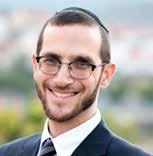
the way we react to others. If we get angry, which can happen, we should follow Moshe’s lead and take a “break.” Try not to react immediately while in the heat of the moment, so as not to say something we may later regret. As is stated in the Talmud:
Three things are very telling about a person, the way he acts when he drinks, contributes to charity and the way he reacts when angry (Eruvin 65b).
May we be able to interact in a positive manner with each other so that we may be zoche to a geula shlema bimhera biyamenu!
Rabbi Shalom Rosner is Rosh Beit Midrash of the Machon Lev English speaking program and Rabbi of the Nofei HaShemesh community. He is also the Tzurba Maggid Shiur, giving a weekly shiur on Tzurba Hilchot Shabbat. He is a member of the Mizrachi Speakers Bureau (www.mizrachi.org/speakers).
land east of the Jordan.
Point to Consider: why is some of the tribe of Menashe now mentioned, having not been cited in the negotiations with Moshe? (32:33)
Parashat Masei begins by recalling the 42 journeys that the Israelites made from leaving Egypt until the present time, when they are about to cross into the Land of Cana’an.
5th Aliya (Chamishi) – 33:50-34:15
G-d speaks to Moshe in the plains of Moab, telling him to relate to the nation that after entering the Land, they must destroy the idols of the Canaanites and make sure to drive them out the Land. G-d tells Moshe the boundaries of the Land that the tribes will inherit.
6th Aliya (Shishi) – 34:16-35:8
G-d announces the names of the leaders of each tribe, who will take charge of apportioning land to his tribe’s members. 42 cities are designated specifically for Levi’im to live in, surrounded by a designated amount of open space. These cities are also to provide refuge for a person who has killed accidentally and is fleeing from the relatives of the deceased.
7th Aliya (Shevi’i) – 35:9-36:13
In addition, six cities are designated as special ‘cities of refuge’, to which the accidental killer can flee. Instructions are given about what constitutes ‘accidental’ and how the community must endeavour to protect the accidental killer from those who are pursuing him. Men from the tribe of Menashe approach Moshe, concerned that the land given to the five daughters of Tzelofchad, a descendant of Menashe (see parashat Pinchas 27:1- 8) would be lost from the tribe if they marry men from other tribes. Moshe responds that they should only marry men from the tribe of Menashe; this they do. This is the closing part of the book of Bemidbar. We stand for the final verse and then recite: “chazak, chazak ve’nitchazek”, a phrase asking for continued strength to study the Torah.
4:1-2)
This haftarah, taken from Yirmiyahu (Jeremiah) is the second of the three ‘haftarot of affliction’ read in the build up to Tisha B’Av. G-d rebukes Israel for turning away from Him and towards idols, forsaking the opportunity He gave them when He bought them into the fruitful Land.

This week we have not one but two parshiot! Double the fun and we’re done with Bamidbar and gearing up for Devarim next week.
You know how we were going to leave Midyan alone? And then they sent Balak, the evil sorcerer/prophet and then sent some naughty girls to cause a plague that killed 24,000? Well, Hashem wants 1000 men from each shevet, tzadikim, to go to war with Midyan. But when they are finished, Moshe will die. Klal Yisrael love their leader and can’t bear the thought of losing him. Not one person steps forward and Moshe must pick lots. Moshe puts Pinchas in charge and off they set. Old, righteous, bookworm types, 12,000 versus the entire, trained army of Midyan and Billam. No contest, who’s in charge? Hashem. What are you stressing for. We win big time. We
take down all the Midyaniit men and the five Kings of Midian as well as Bilam. Not a single Jewish soldier dies!! There is a lot of spoils and Hashem commands that the animals are shared equally with the people who stayed behind. All the gold and silver and jewels go the fighters who give it all away to the Mishkan. Holy people, remember? Then we got the kitchen stuff. The pots and pans need toveling. Whenever you buy something from a goy, if it’s for food you need to dip it in a mikvah and make a blessing to sanctify it so it’s kosher.
Since we conquered Sichon and Og, we get to divide up the land. The shevatim of Reuven, Gad and half of Menashe want to stay there for the grazing and not go into Eretz Yisrael proper. Moshe tells them off for this, they value their money more than
Eretz Yisrael, and from what they said to him, more than their children. In a small way because these people were really righteous, but Moshe was a great man and called them out on it. Will you sit back and let your brothers do all the fighting? They promise to help fight the wars before coming back home. That ends Matot, now for Masei. Hashem list out all the places we stopped and tells us the borders for Eretz Yisrael and where each shevet will live. A city of refuge was a Levite city that someone who killed another person by accident could run to. The closest relative of the victim had the right to kill him if he didn’t go or if he left. Hashem only makes bad things happen through bad people, so if Bill was involved in an accident that killed Bob, Bill wasn’t a good person anyway. Moshe sets up three of these cities across the Yarden for the two
and a half tribes and Yehoshua later set up three more in Israel.
Do you remember the daughters of Tzelaphchad? The 5 women who got a portion of the land because their father was dead and the 5 had no brothers? Well, this week, their tribesmen are worried that they’ll marry other tribes and the land go to their husbands and sons and won’t belong to their shevet anymore! Hashem advises them to marry in their own tribes, they all marry righteous men and Hashem makes a miracle and these amazing women who were all over 40 have children who inherit their land!
Finally, Moshe knew what actually happened in each campsite, and we have officially learnt the whole of Bamidbar.
Chazak, Chazak v’nitchazek!
Number of Verses - 244
Number of Words - 2,945
Number of Letters - 11,425
This week’s Question:
Two exactly identical people in the exact same place on the exact same day do the exact same act with the exact same intentions. However, the first one is fulfilling a mitzvah d’oraita, a Torah commandment, and the second one is transgressing an issur d’oraita, a Torah prohibition.
Using all the shapes, can you make the shape on the right?
The goal of a word wheel puzzle is to create as many words possible with the letters in the word wheel. Each word must contain at least three letters. You can only use each letter once and every word must have the letter in the centre of the wheel.
Last edition’s words
Here are some words you may have found from last week – you may have found more!
Use the area below to write the words you have found. Y I I S O U R T C
Q: What falls in the winter, but never gets hurt?
A: The snow!
Q: What do you call a dog that can tell the time?
A: A watch dog!
Q: What kind of shoes do
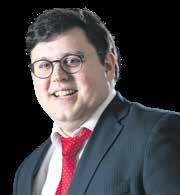
Hi Jacob,
My marketing company specialises in supporting Financial Services Firms by creating and managing their online marketing. Do the new Financial Promotion Rules apply to me or only to the firm we create the promotions for? - Anna
Hi Anna,
The new Financial Promotion Rules may apply to you under certain conditions.
Under the new rules which came into force in February 2024, only authorised firms with specific FCA permission can approve financial promotions for unauthorised persons or firms. Exemptions to this rule are authorised firms which can approve their own financial promotions, the financial promotions of their Appointed Representatives if applicable, or the financial promotions of unauthorised persons within their corporate group.
If your marketing company is involved in the creation and dissemination of financial promotions, these promotions must be approved by an authorised firm before they can be communicated to the public. This means:
1. Any authorised firms that you support, will need to ensure that any financial promotion you create complies with FCA regulations. They must have the necessary permissions and processes in place to approve these promotions on their own behalf, before they are published.
2. If your clients are unauthorised firms and promoting investment types which fall within S.21 of the Financial Services and Markets Act, they will need to have their promotions approved by an authorised firm such as Richdale, which is authorised to approve such Financial Promotions.
While the new Financial Promotion Rules do not directly regulate marketing companies like yours, the rules will affect your clients and, by extension, your work, as you will need to ensure that the financial promotions you manage are appropriately signed off by an authorised firm.

KOSHER DELI
Kosher Deli was established with the intention of making kosher meat and poultry affordable for all with the convenience of multiple locations and a comprehensive delivery service. All this without compromising on kashrus or quality.
Locations in: Golders Green, Hendon, Temple Fortune, Edgware, Borehamwood & Manchester

Contact: 020 8381 4450 info@kosherdeliuk.co.uk www.kosherdeli.co.uk

MARTIN FRYDENSON - ROUNDTREE REAL ESTATE
Roundtree Real Estate are your local experienced Estate Agent having been established on the High Street since 2009. We are both ARLA and NAEA Propertymark regulated and we are here to offer you expert advice in Property Sales, Lettings, Commercial and Full Management Services, covering Hendon, Golders Green, Finchley, Colindale and surrounding areas. We have built long standing relationships with all our clients and should you have any property related queries please do contact us.

Contact: 020 8203 2111 mail@theroundtree.com www.theroundtree.com
JACOB BERNSTEIN LLB (Hons) CeMAP
A member of the APCC, specialising in financial services compliance for: Mortgage, Protection and General Insurance Intermediaries
• Lenders, Credit Brokers, Debt Counsellors, Debt Administrators and Debt Collectors Wealth Management (Portfolio Management and Advice Services), Capital Markets (Asset Management and Broker Dealers), Wholesale Investment Firms (Fund Managers, Corporate Finance and Private Markets)
• Payment Services, PISP, AISP and E-Money.

Contact: 020 7781 8019 info@richdale.co.uk www.richdale.co.uk

Book a FREE meeting with UKAA’s founder Gary Brown, who will go through your particular needs and wants on a the PRACTICAL side of leaving your country of origin and/or living in/moving to Israel. This is both for pre and post- Aliyah Olim.
This FREE meeting will allow Gary to advise on who you need to speak with for each requirement and when in the year you should approach them. Confidentiality assured.

Contact: +972 (0)2 372 3775 / +44 (0)20 3 989 5080 info@aliyahadvisors.com aliyahadvisors.com/aloh-naaleh/
JEWISH CARE
Jewish Care is the largest health and social care organisation serving the Jewish community in London and the South East. Our vital services touch the lives of 10,000 people every week. We provide services and offer a wide range of support groups to older people, people with mental health needs, Holocaust survivors, people living with dementia, people with a variety of needs and carers support.

Contact: 020 8922 2222 helpline@jcare.org www.jewishcare.org
MARC OVITS – BA (HONS) APFS CERT PFS (DM)
Over 25 years of successful experience in financial services including 11 years of investment banking experience.
Offering expert independent financial advice to individuals, businesses, charities and trusts. Individual services:- Wealth Management, Investment, Retirement, Estate/IHT, protection planning, Tax Mitigation and Cash Management Solutions
Business & Charity services:- Investment Planning, Business Succession & Business Exit Planning, Business Protection, Corporate Pensions, Employee Benefits, Cash Management Solutions, Profit extraction strategies

Alpha Wealth Management
Contact: 020 8203 6920 info@alphawm.co.uk www.alphawm.co.uk
MATRIX SURVEYORS LIMITED
Offering a range of building surveying services and specialising in party wall matters, nationwide, for both consumers and businesses, including; -
• Pre-acquisition Surveys
• Party Wall Matters
• Defect Inspections
• Schedules of Condition
• Insurance Reinstatement Costs Assessments
Contact:
Toli Moscovitz BSc (Hons) MRICS 0161 823 6973 info@matrixsurveyors.co.uk www.matrixsurveyors.co.uk
STEPHEN MORRIS SHIPPING
MARTIN HEIMAN – SMARTINET
We’ve been providing businesses with all of their communication needs since 2010. We specialise in supplying businesses with VoIP Packages, Mobile Plans, Broadband, Card Merchant Services, Leased Lines, On-Hold Marketing, and Call Centre Services. Smartinet, your reliable and efficient business communications provider.

Contact: 0333 613 0000 connect@smartinet.co.uk smartinet.co.uk

• Planned Preventative Maintenance Schedules
• Construction Project Management
• Licence for Alterations
• Insurance claims

With almost 40 years experience, our company has the ability to move household and personal effects and antiques and fine art with the professionalism and care that comes from that experience coupled with an attention to detail.
We construct our own Tri-Wall and wooden packing cases on site and employ full-time art installers and handymen for those ‘extra’ jobs that always need doing on a move or installation. And size is no limitation – we have moved trains, boats and planes across the world and even bridges and a 5,000 seater tent!

Contact: 020 8832 2222 info@shipsms.co.uk www.shipsms.co.uk

We are a well-established and successful Managed I.T. Services Provider (MSP) with a clear sense of purpose. We plan, design and enable the procurement, implementation, protection and management of a wide range of modern technologies through an earned and trusted partnership with our clients across the UK. We enable our clients to be operationally efficient by successfully embracing their digital transformation journey.





Looking for a bespoke Kosher holiday that meets all your tailored needs?
Discover your perfect Kosher getaway with Bespoke Kosher Travel! Our experienced team specialises in creating customised holidays that meet your every Kosher requirement From remote destinations to popular tourist spots, we've got you covered
Contact us today and let us plan your dream Kosher holiday!


